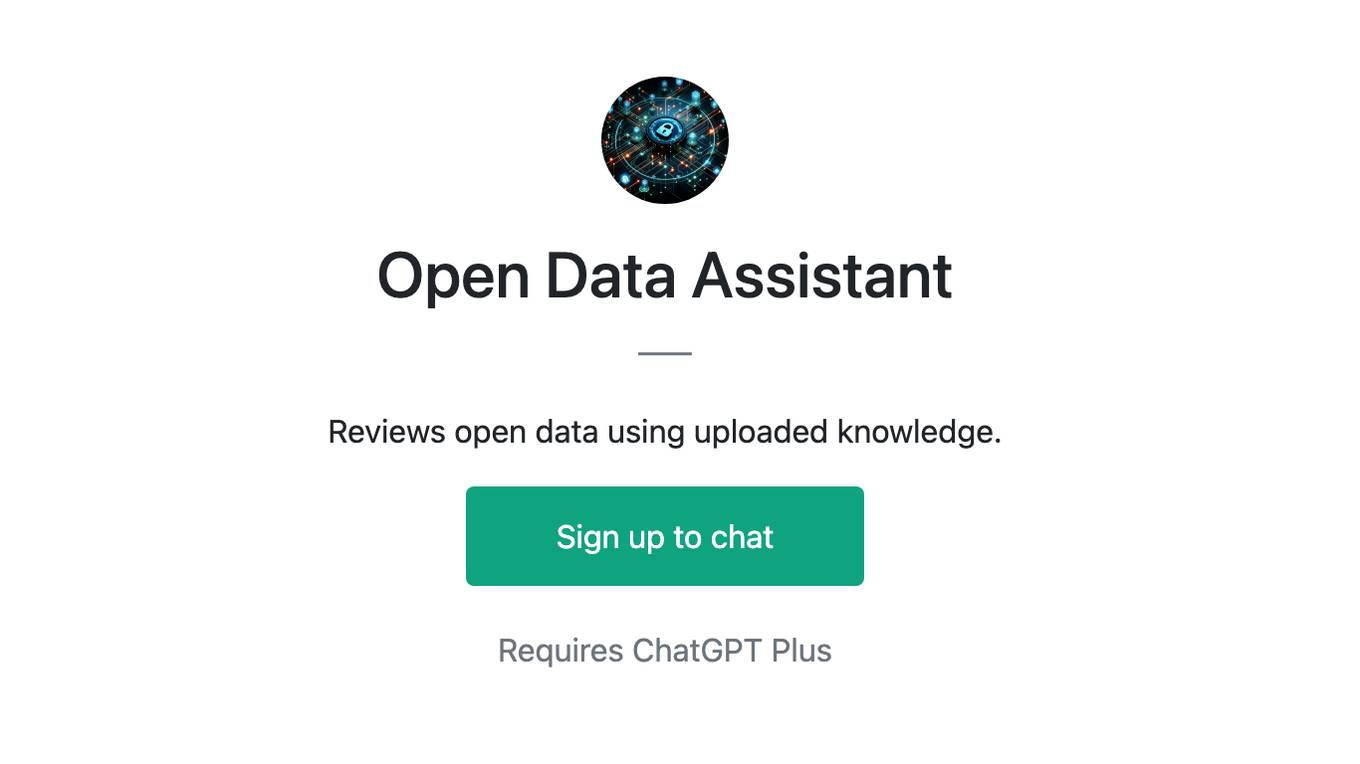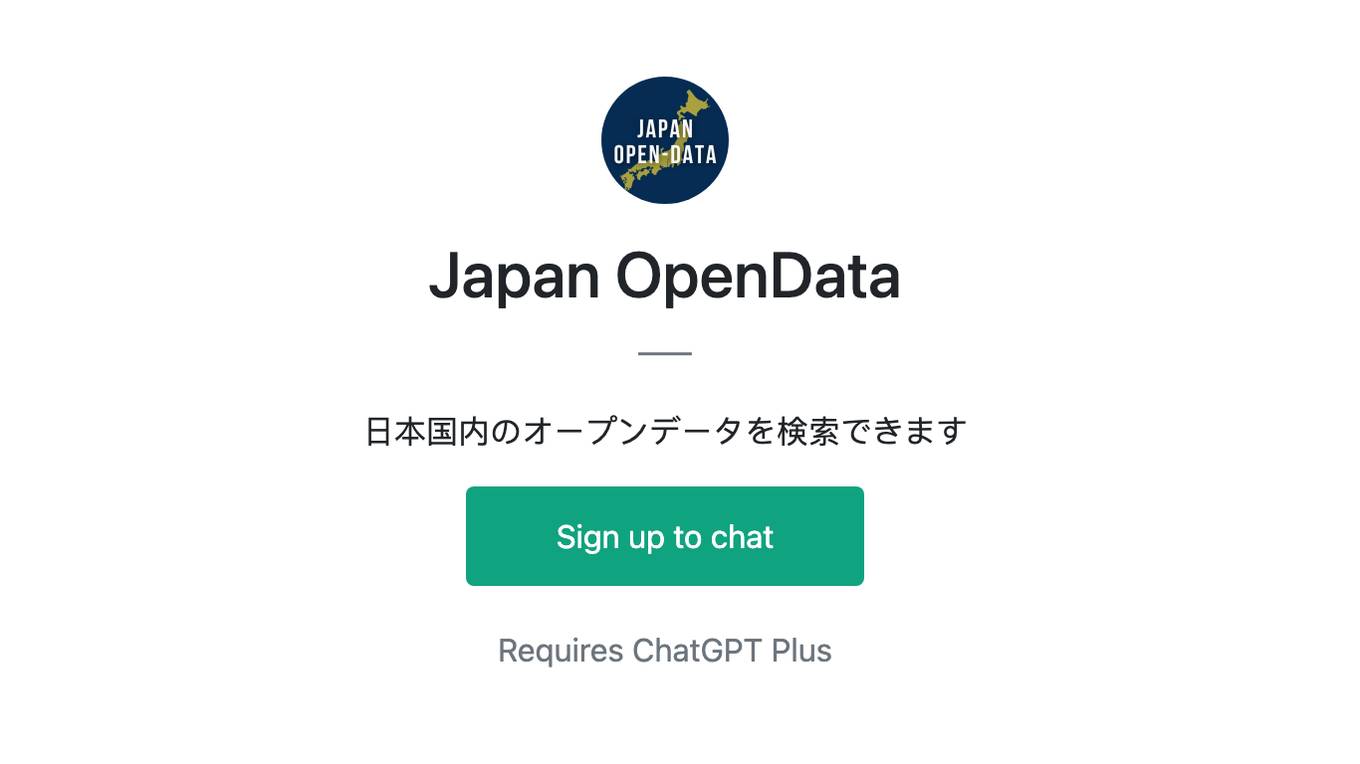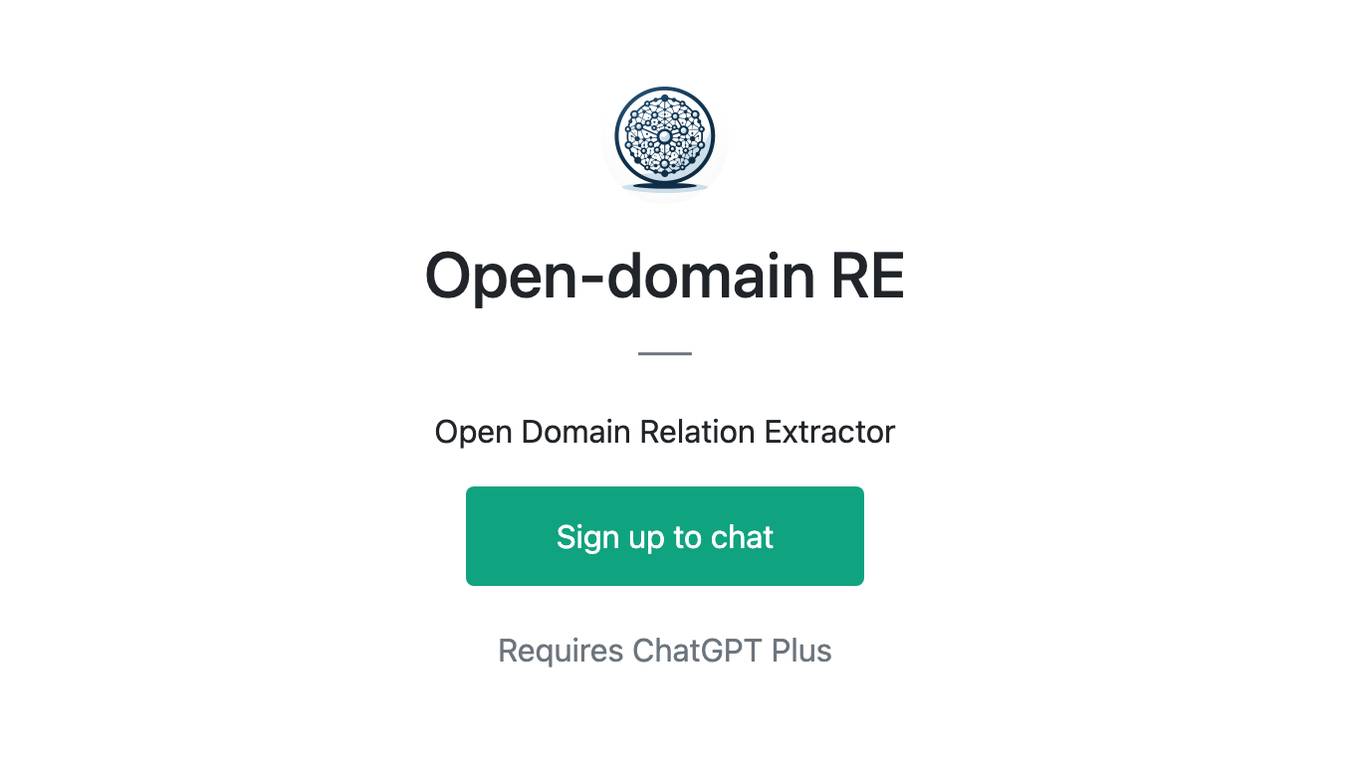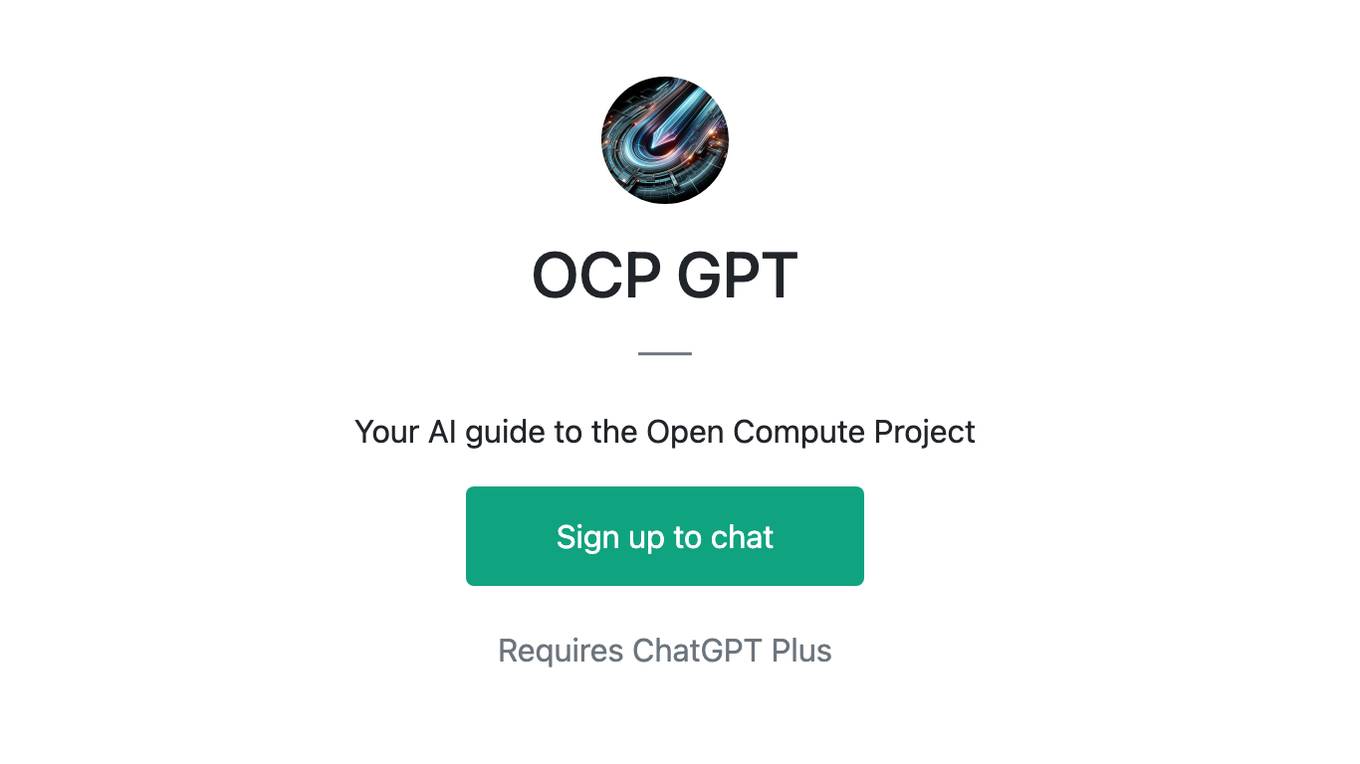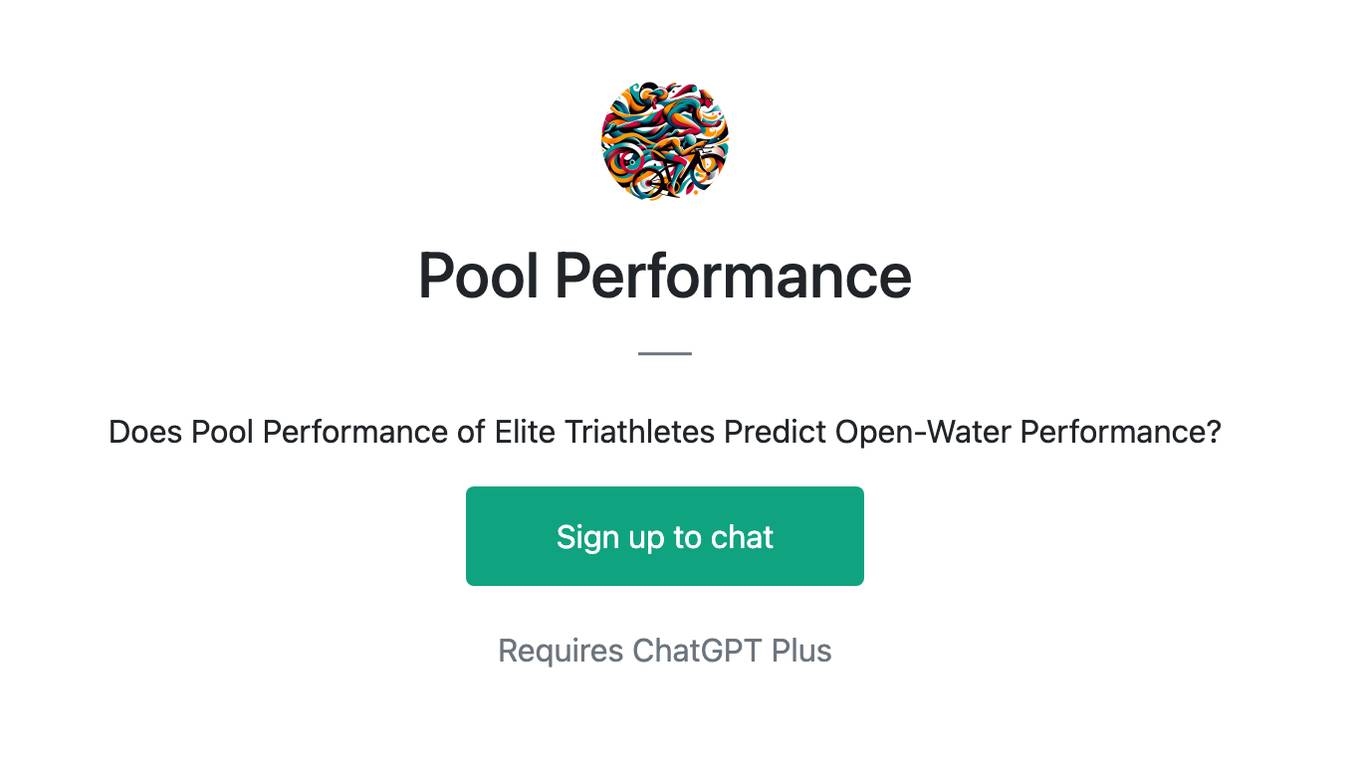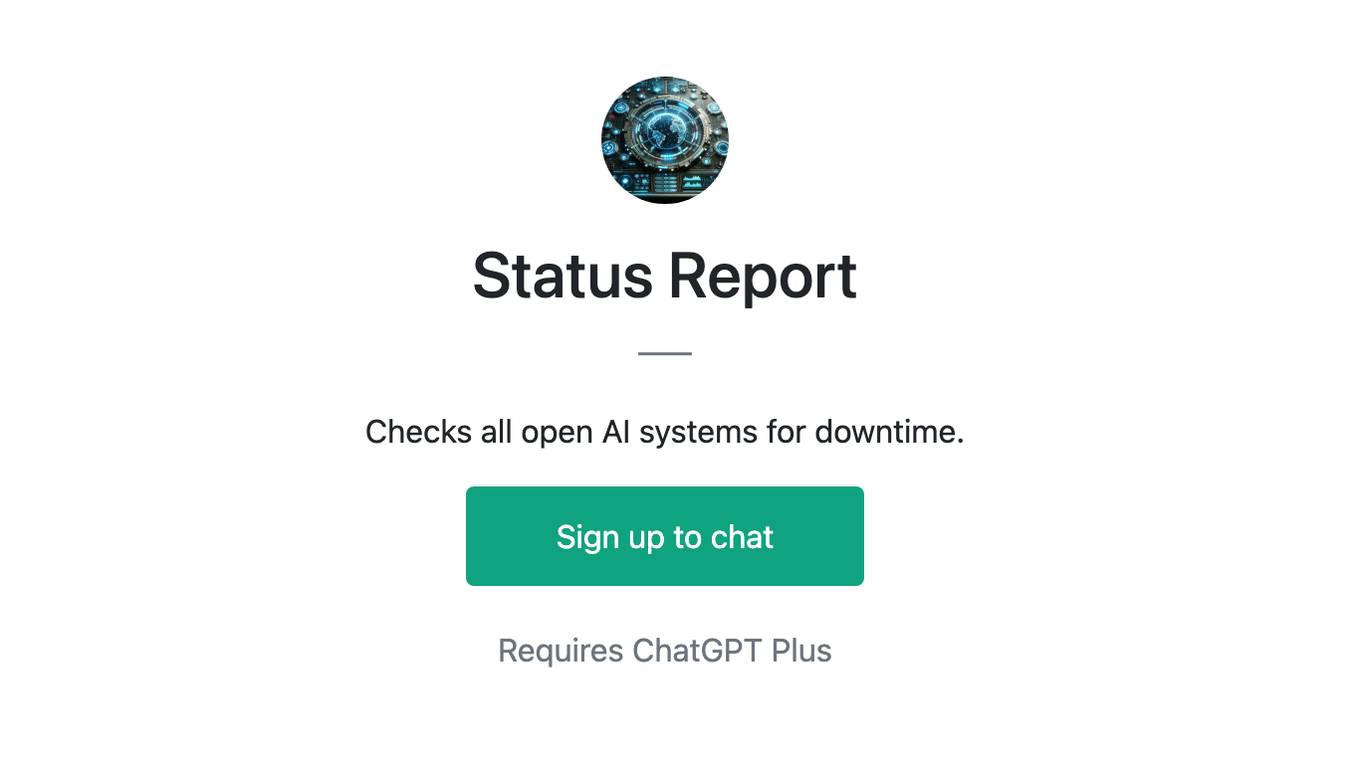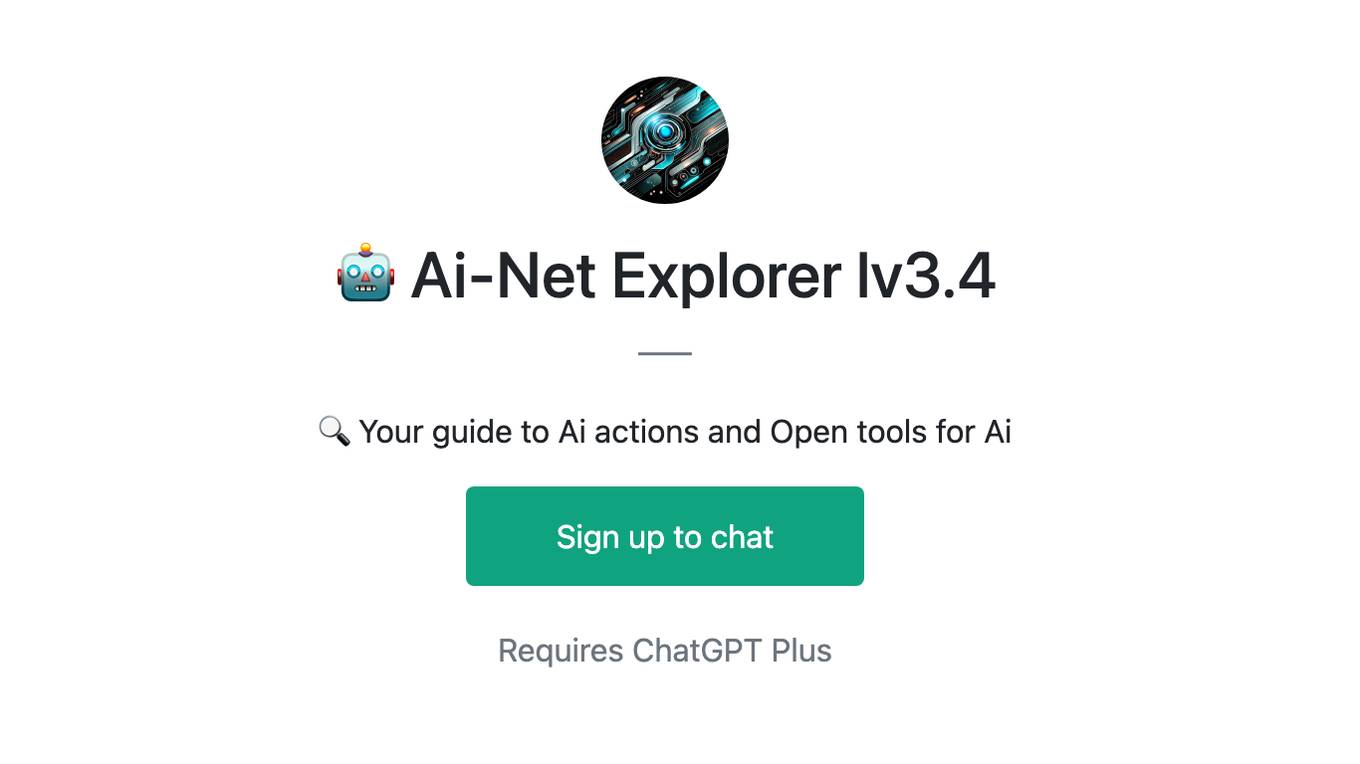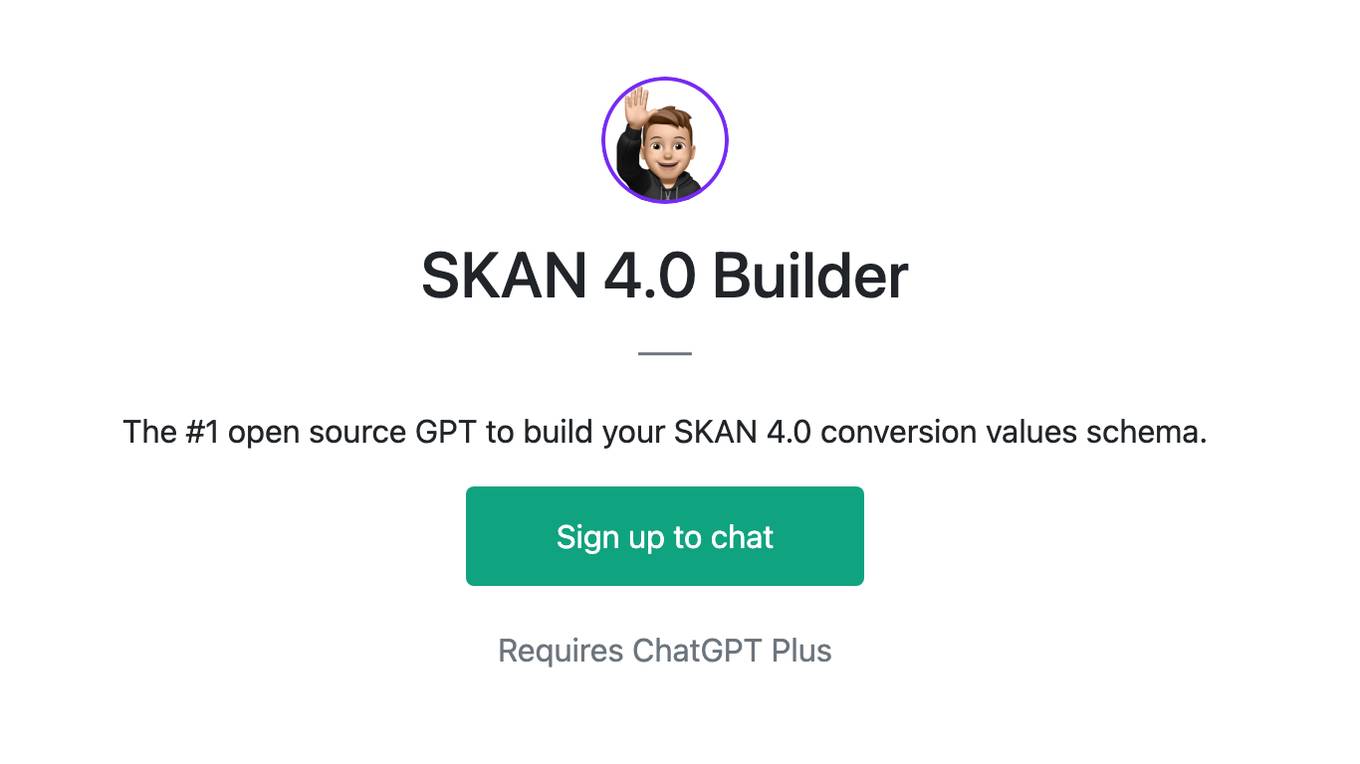Best AI tools for< Open Data Advocate >
Infographic
20 - AI tool Sites
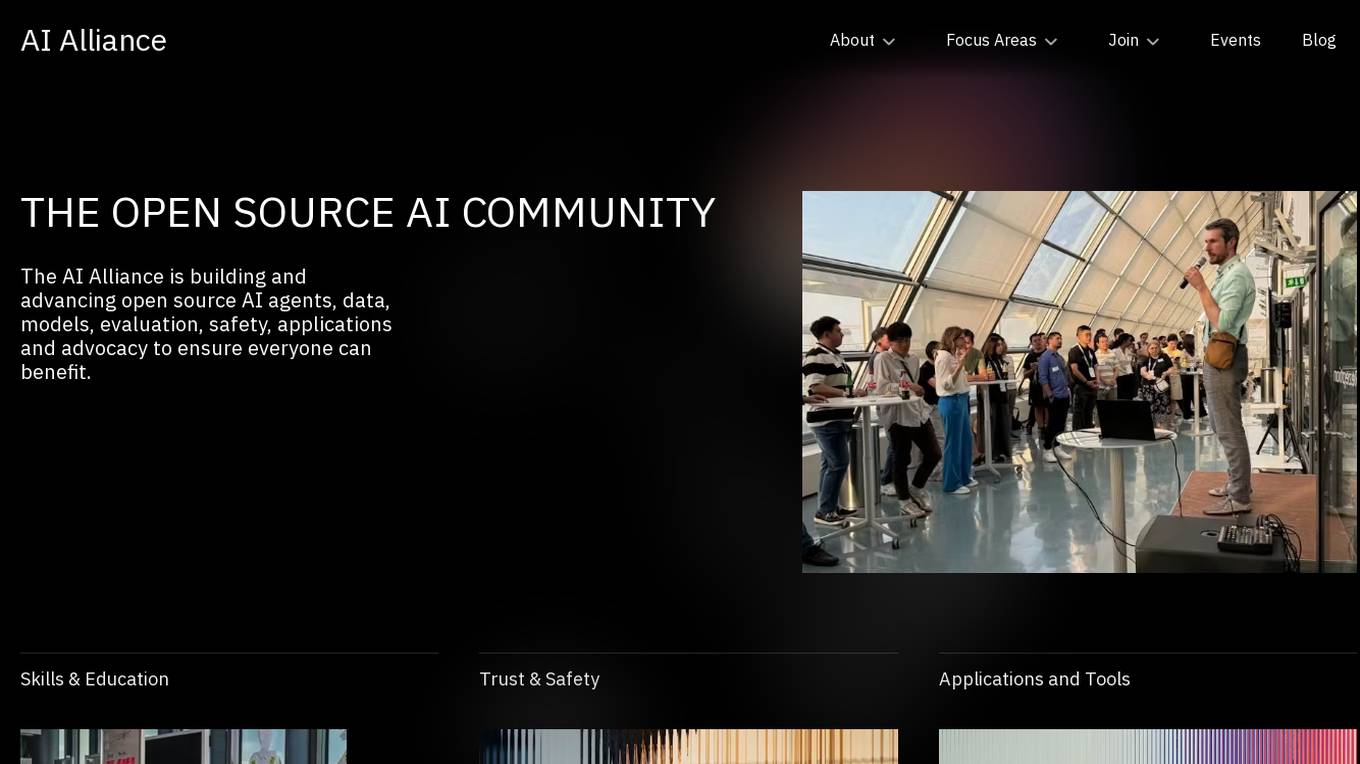
AI Alliance
The AI Alliance is a community dedicated to building and advancing open-source AI agents, data, models, evaluation, safety, applications, and advocacy to ensure everyone can benefit. They focus on various areas such as skills and education, trust and safety, applications and tools, hardware enablement, foundation models, and advocacy. The organization supports global AI skill-building, education, and exploratory research, creates benchmarks and tools for safe generative AI, builds capable tools for AI model builders and developers, fosters AI hardware accelerator ecosystem, enables open foundation models and datasets, and advocates for regulatory policies for healthy AI ecosystems.
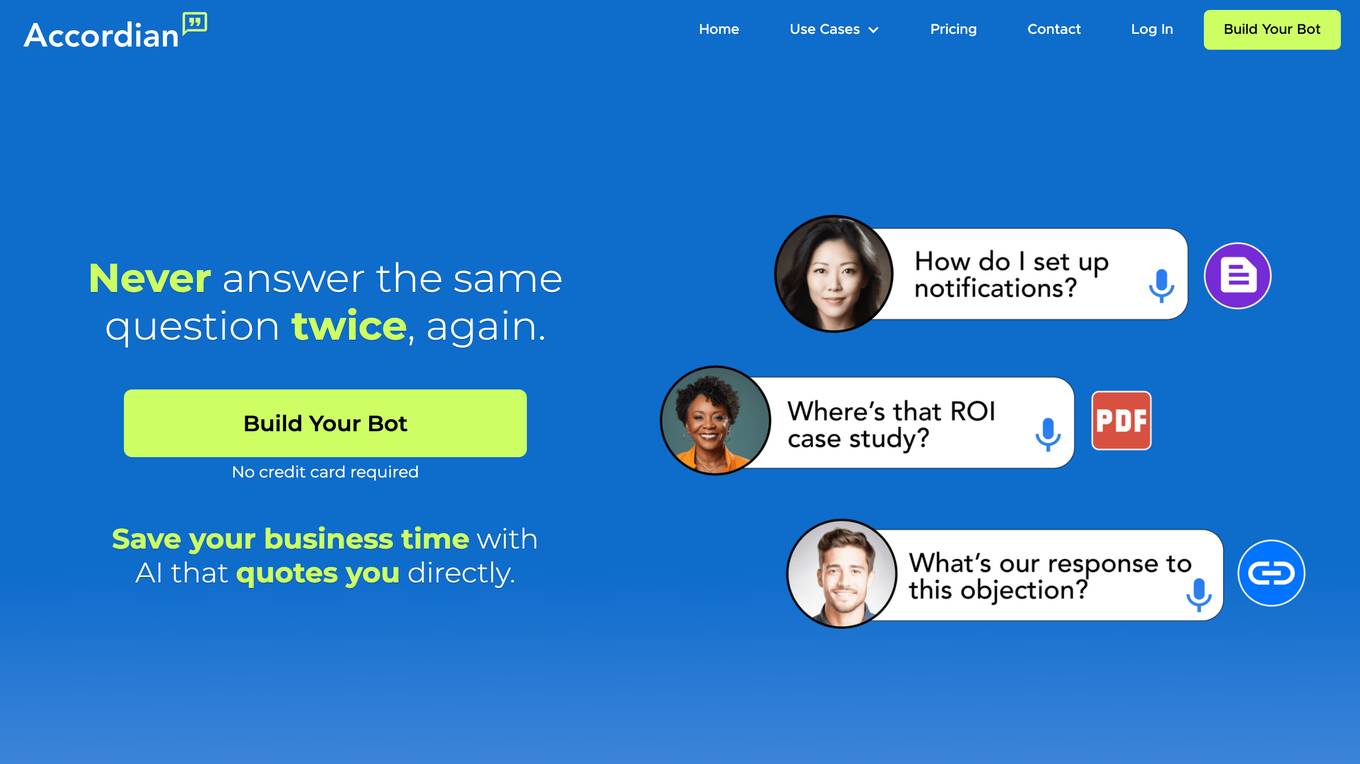
knowledgebot.ai
knowledgebot.ai is an AI tool designed to revolutionize education by leveraging data-informed teaching, personalized learning, immersive technologies, and global connectivity. It aims to enhance the learning experience, differentiate support, accelerate feedback loops, and create richer learning experiences at scale. The tool focuses on reshaping education through micro-credentials, competency-based education, and authentic assessments to reflect real mastery. It emphasizes human-centered learning by combining adaptive platforms with teacher expertise and ensuring accessibility for every learner. Guardrails around bias, privacy, and transparency are essential to maintain trust and protect student agency. The tool advocates for investment in educator development, robust data governance, and open standards to drive high-impact practices in education.
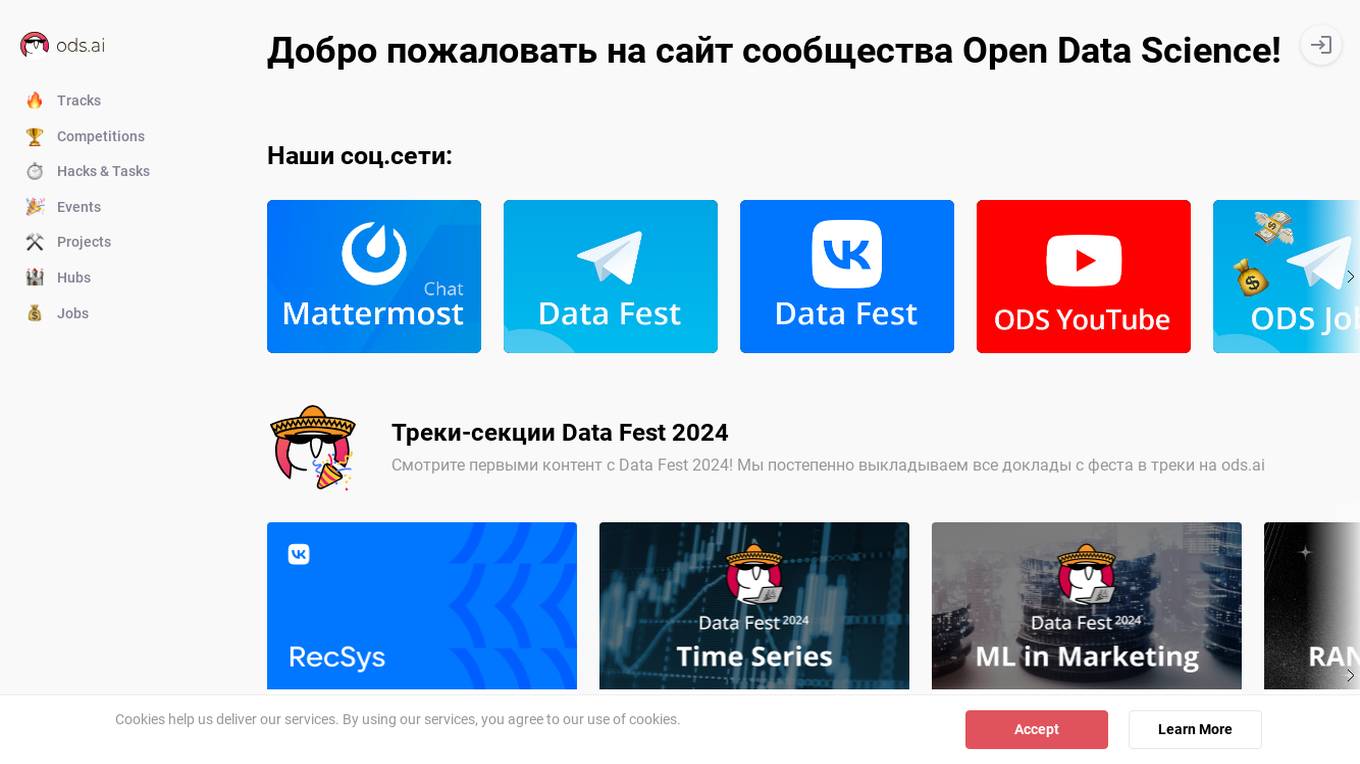
Open Data Science
Open Data Science (ODS) is a community website offering a platform for data science enthusiasts to engage in tracks, competitions, hacks, tasks, events, and projects. The website serves as a hub for job opportunities and provides a space for privacy policy, service agreements, and public offers. ODS.AI, established in 2015, focuses on various data science topics such as machine learning, computer vision, natural language processing, and more. The platform hosts online and offline events, conferences, and educational courses to foster learning and networking within the data science community.
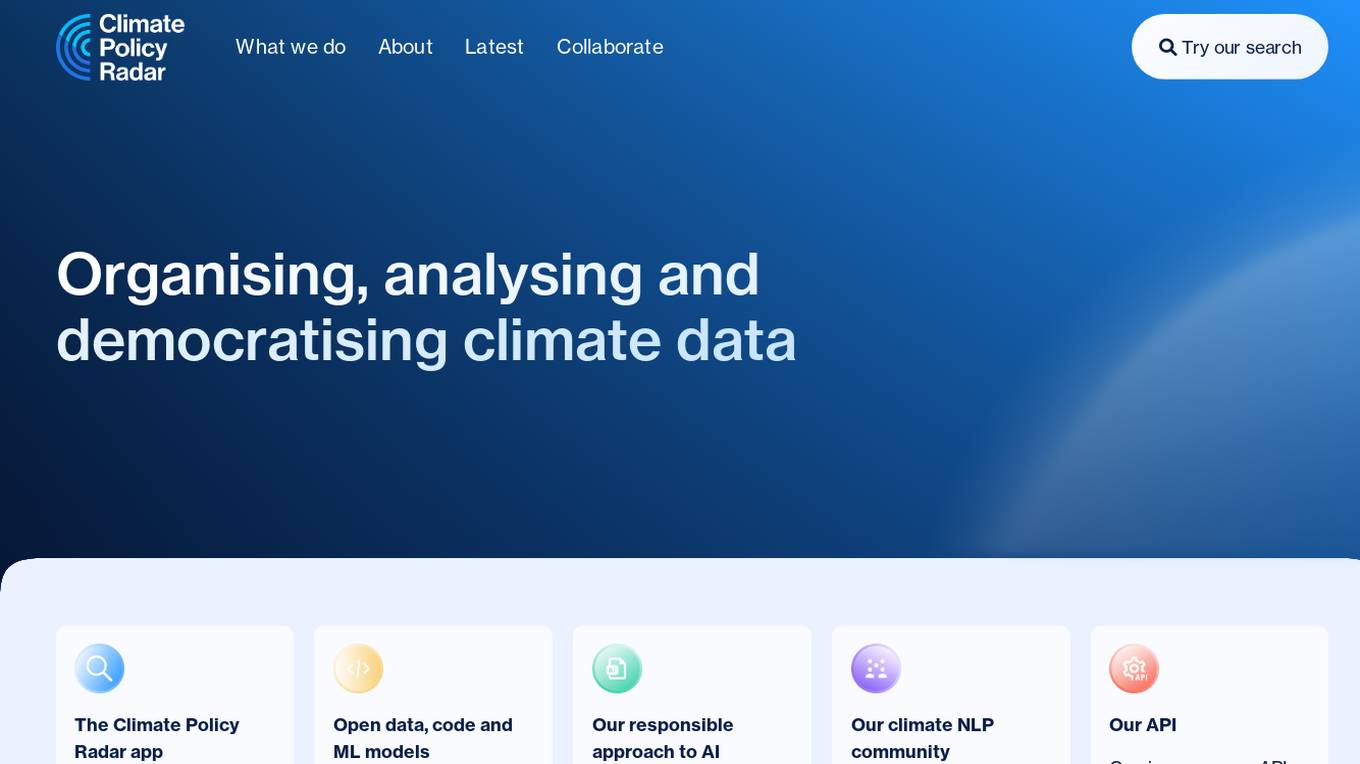
Climate Policy Radar
Climate Policy Radar is an AI-powered application that serves as a live, searchable database containing over 5,000 national climate laws, policies, and UN submissions. The app aims to organize, analyze, and democratize climate data by providing open data, code, and machine learning models. It promotes a responsible approach to AI, fosters a climate NLP community, and offers an API for organizations to utilize the data. The tool addresses the challenge of sparse and siloed climate-related information, empowering decision-makers with evidence-based policies to accelerate climate action.
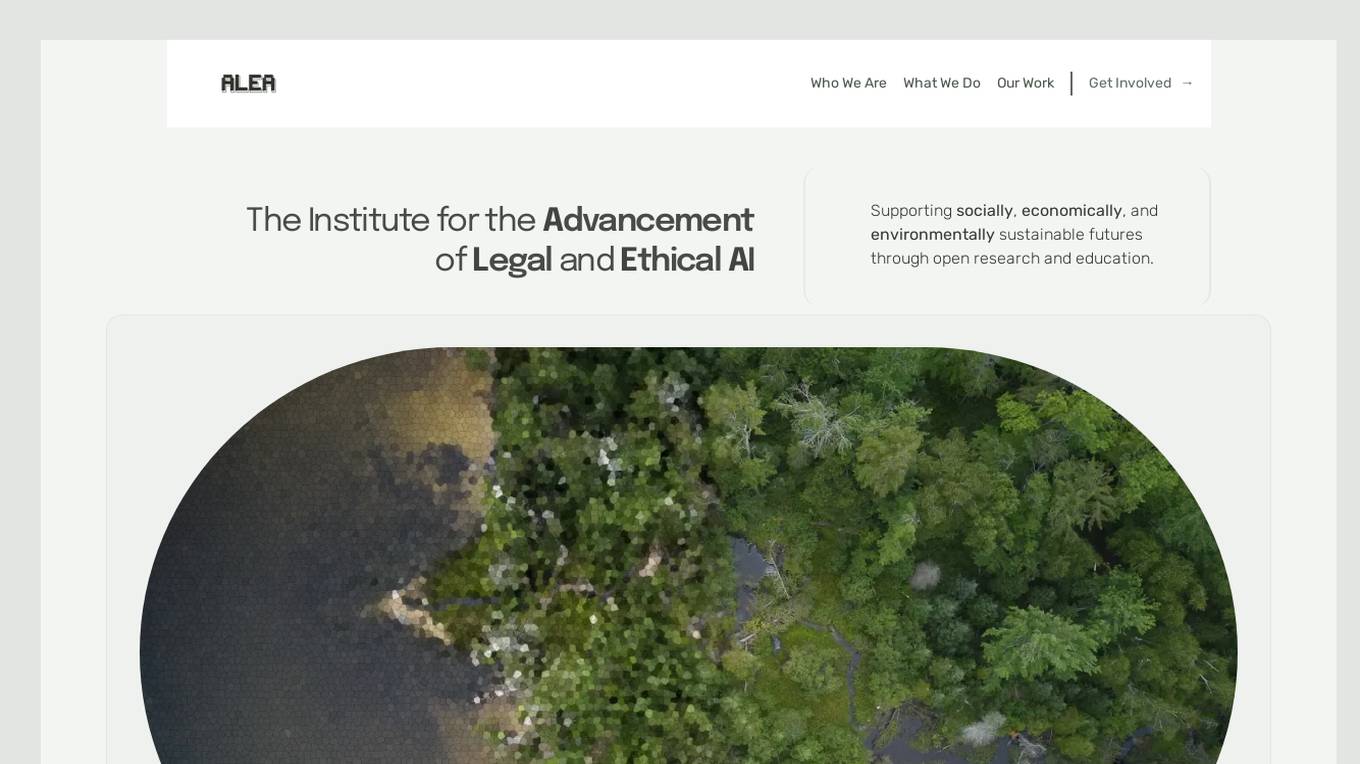
The Institute for the Advancement of Legal and Ethical AI (ALEA)
The Institute for the Advancement of Legal and Ethical AI (ALEA) is a platform dedicated to supporting socially, economically, and environmentally sustainable futures through open research and education. They focus on developing legal and ethical frameworks to ensure that AI systems benefit society while minimizing harm to the economy and the environment. ALEA engages in activities such as open data collection, model training, technical and policy research, education, and community building to promote the responsible use of AI.
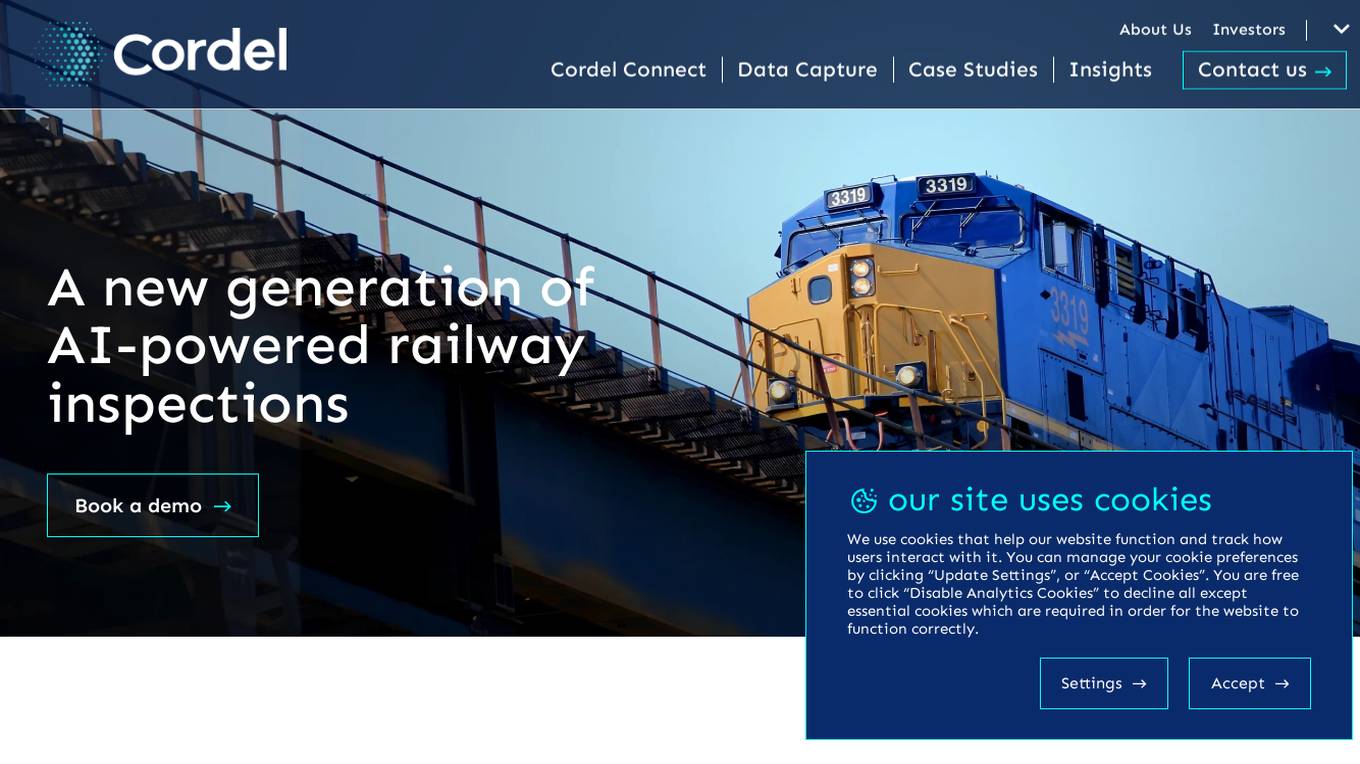
Cordel Connect
Cordel Connect is an open-data inspection management platform that enables the storage, management, visualization, and intelligent analysis of railway inspection data. It offers powerful, precise, unattended sensing systems and data workflows to help railways automate high-frequency, high-precision inspections from any rail vehicle. The platform consolidates all survey and inspection data into a single source of truth, eliminating data silos and integrating with existing systems. Cordel Connect utilizes powerful AI to automate the infrastructure inspection process, delivering improved inspection insights and compliance. It also provides modules for managing surveys, asset inspections, and safety compliance assessments tailored to network standards.
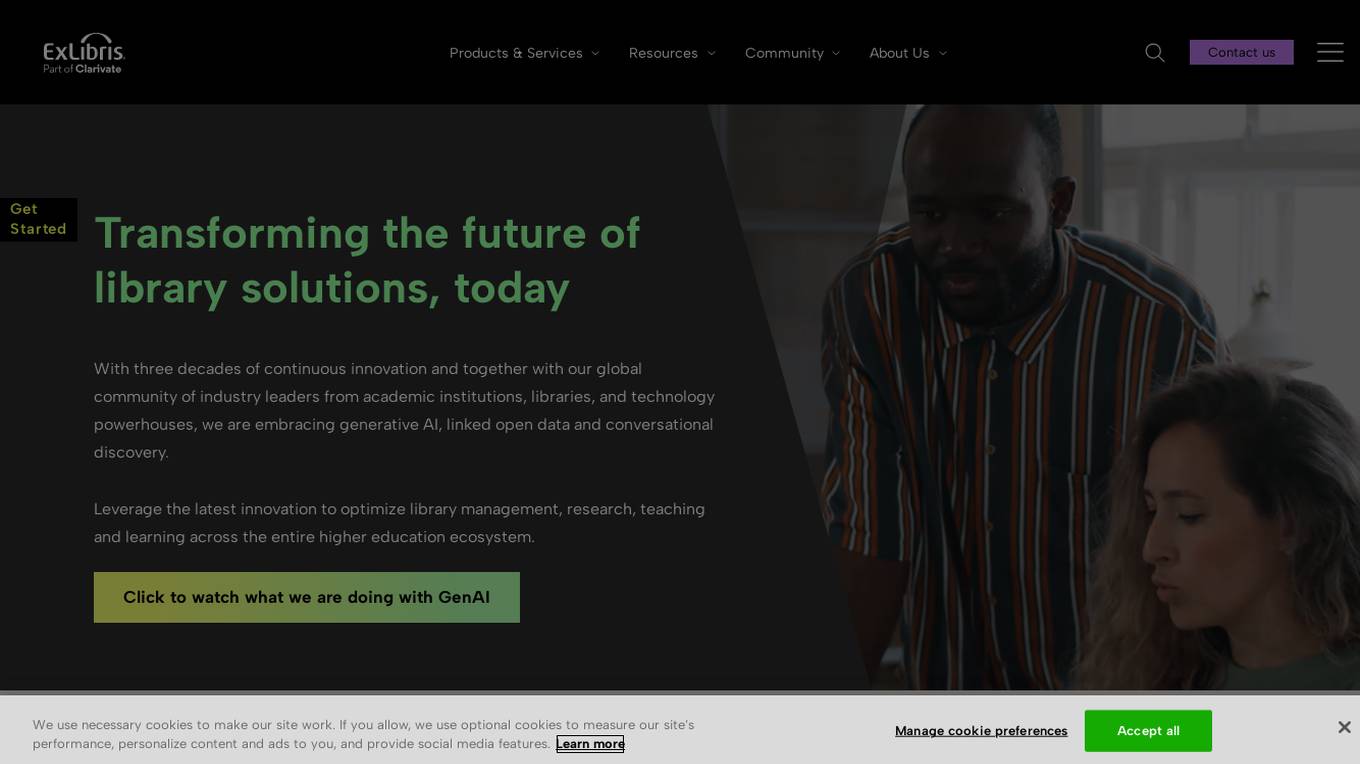
Ex Libris Products & Services
The website is a comprehensive platform offering a suite of software solutions for library management, research, teaching, and learning in the higher education ecosystem. It leverages generative AI, linked open data, and conversational discovery to optimize operations, integration, personalized experiences, and analytic insights. The platform includes various products and services such as Alma, Primo, Leganto, Rapido, Rosetta, and campusM, catering to the unique needs of academic institutions, libraries, and technology powerhouses. The website features success stories, customer testimonials, webinars, learning resources, and community engagement initiatives.
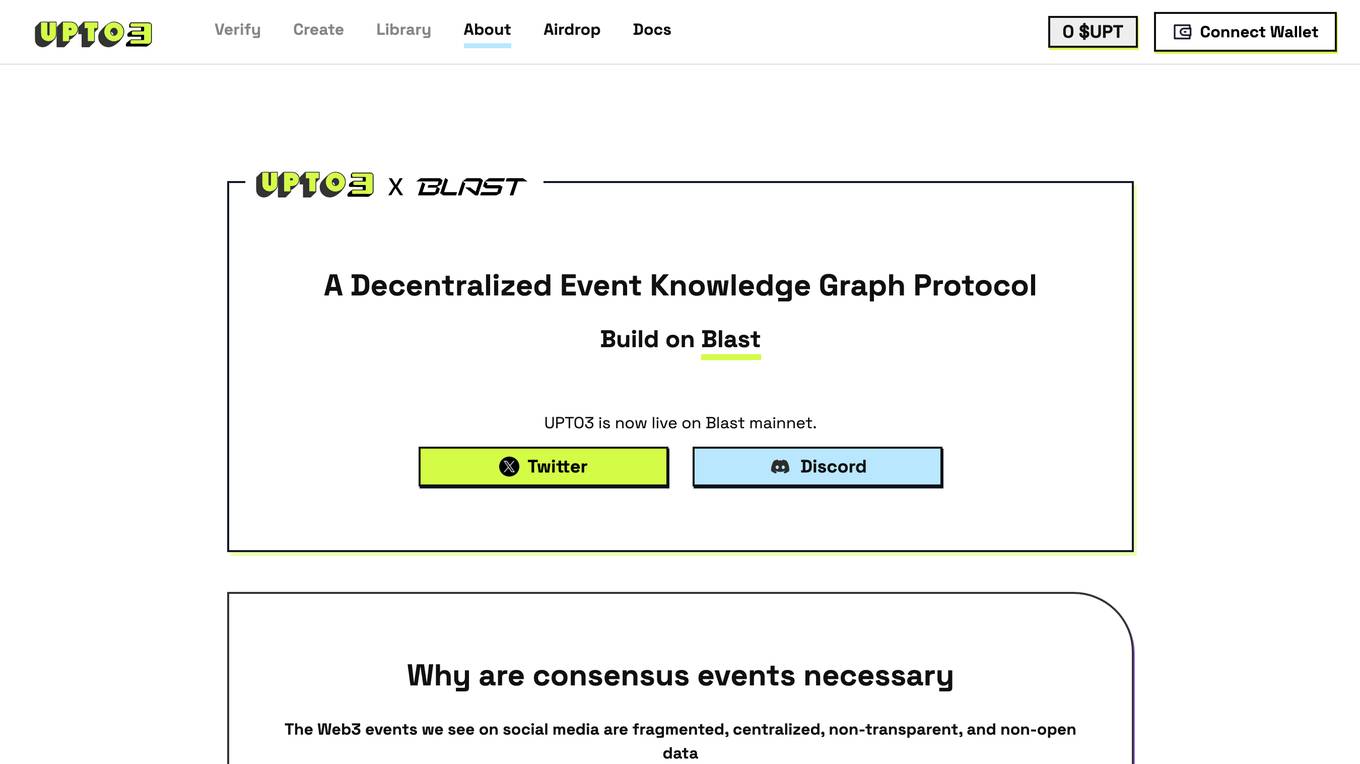
UPTO3
UPTO3 is a decentralized event knowledge graph protocol that aims to provide consensus verification for Web3 events by turning them into NFTs. It allows users to mint and verify events, with rewards based on the results. The platform promotes transparency, open data, and unbiased analysis through economic incentives. UPTO3 will be built on Blast(L2) and offers features such as event minting as NFTs, permissionless access, and decentralized validation tasks.
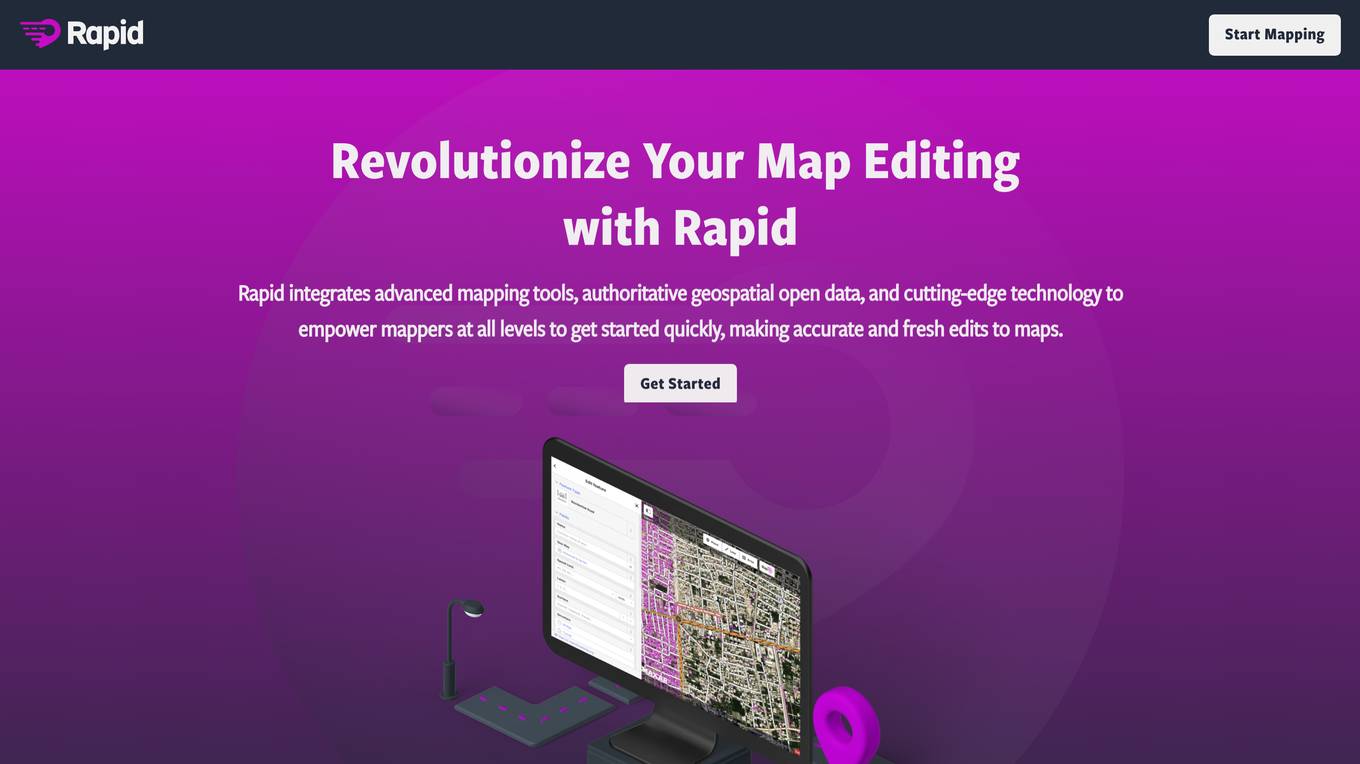
Rapid Editor
Rapid Editor is an advanced mapping tool that revolutionizes map editing by integrating cutting-edge technology and authoritative geospatial open data. It empowers OpenStreetMap mappers of all levels to quickly make accurate and fresh edits to maps. The tool saves effort by tapping into open data and AI-predicted features to draw map geometry, provides AI-analyzed satellite imagery for a high-level overview of unmapped areas, and displays open map data and machine learning detections in an intuitive user interface. Rapid Editor is designed to help map the world efficiently and is supported by a strong community of humanitarian and community groups.
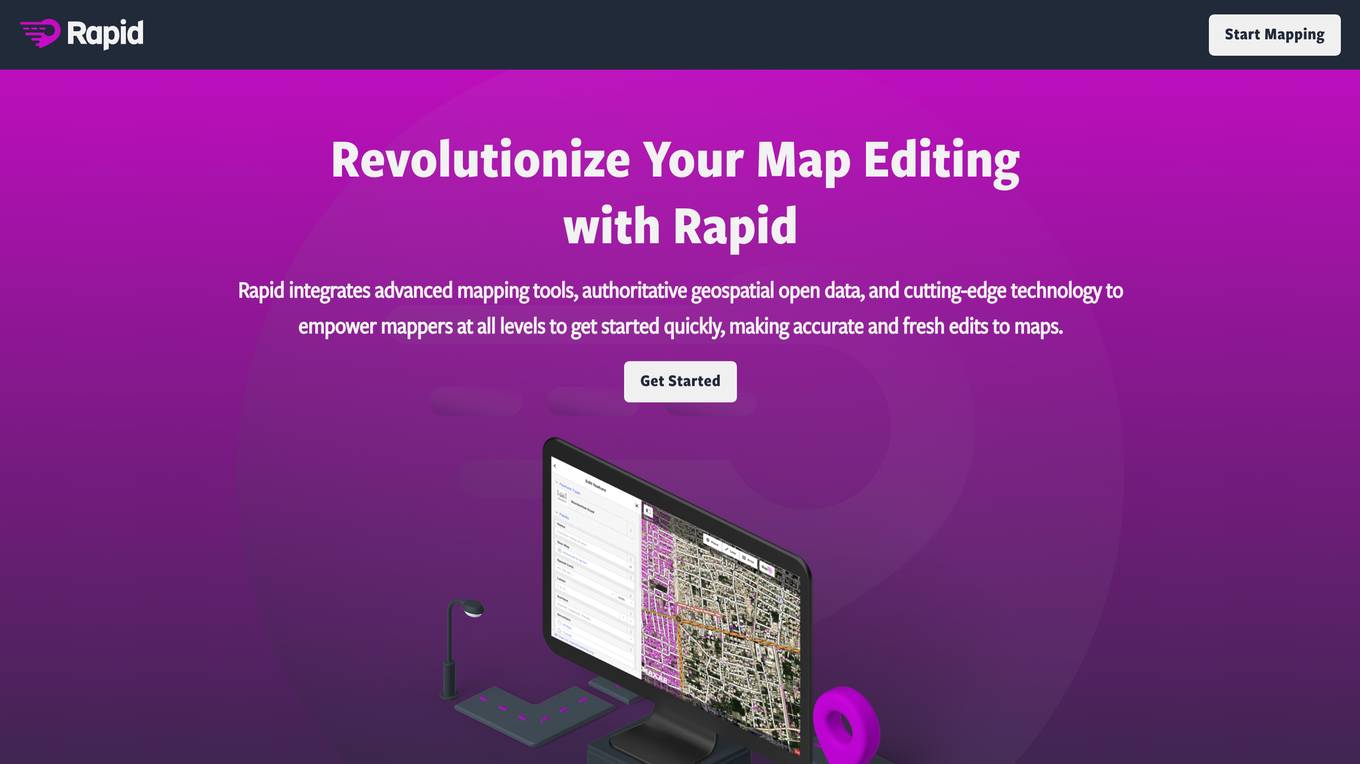
Rapid Editor
Rapid Editor is an advanced mapping tool that revolutionizes map editing by integrating cutting-edge technology and authoritative geospatial open data. It empowers OpenStreetMap mappers of all levels to make accurate and fresh edits quickly. The tool saves effort by utilizing AI to identify predicted features and provide a high-level overview of unmapped data globally. Rapid Editor's intuitive interface simplifies mapping, making it clear and simple for humanitarian and community groups to facilitate mapping projects.

Qubinets
Qubinets is a cloud data environment solutions platform that provides building blocks for building big data, AI, web, and mobile environments. It is an open-source, no lock-in, secured, and private platform that can be used on any cloud, including AWS, Digital Ocean, Google Cloud, and Microsoft Azure. Qubinets makes it easy to plan, build, and run data environments, and it streamlines and saves time and money by reducing the grunt work in setup and provisioning.
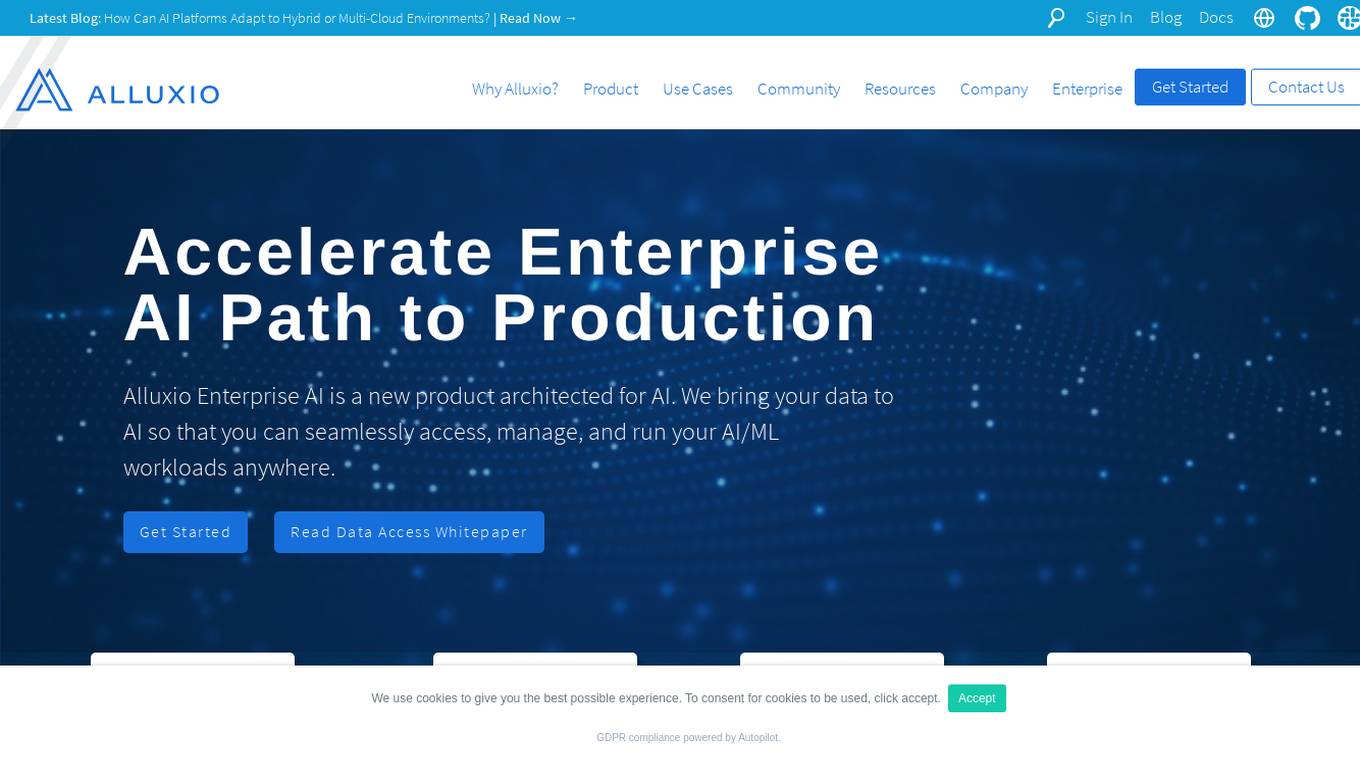
Alluxio
Alluxio is a data orchestration platform designed for the cloud, offering seamless access, management, and running of AI/ML workloads. Positioned between compute and storage, Alluxio provides a unified solution for enterprises to handle data and AI tasks across diverse infrastructure environments. The platform accelerates model training and serving, maximizes infrastructure ROI, and ensures seamless data access. Alluxio addresses challenges such as data silos, low performance, data engineering complexity, and high costs associated with managing different tech stacks and storage systems.
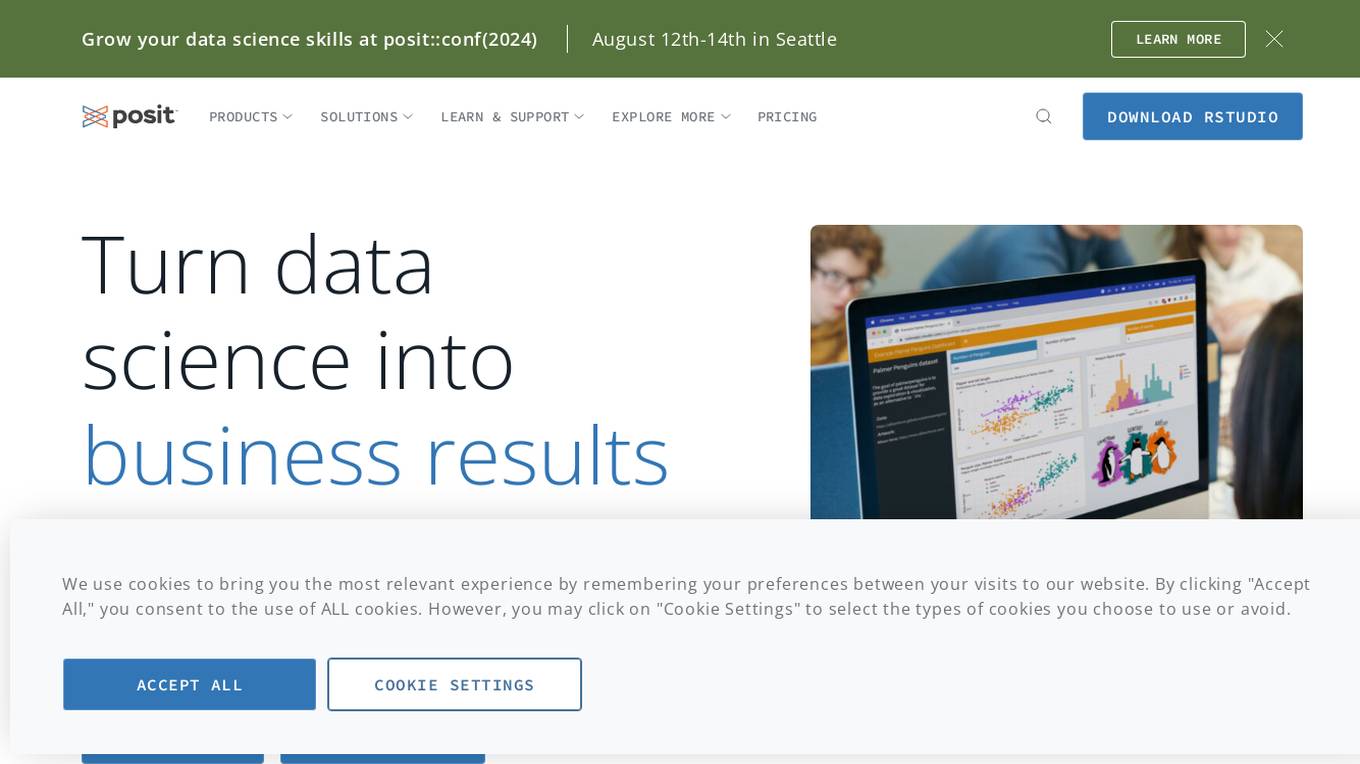
Posit
Posit is an open-source data science company that provides a suite of tools and services for data scientists. Its products include the RStudio IDE, Shiny, and Posit Connect. Posit also offers cloud-based solutions and enterprise support. The company's mission is to make data science accessible to everyone, regardless of their economic means or technical expertise.
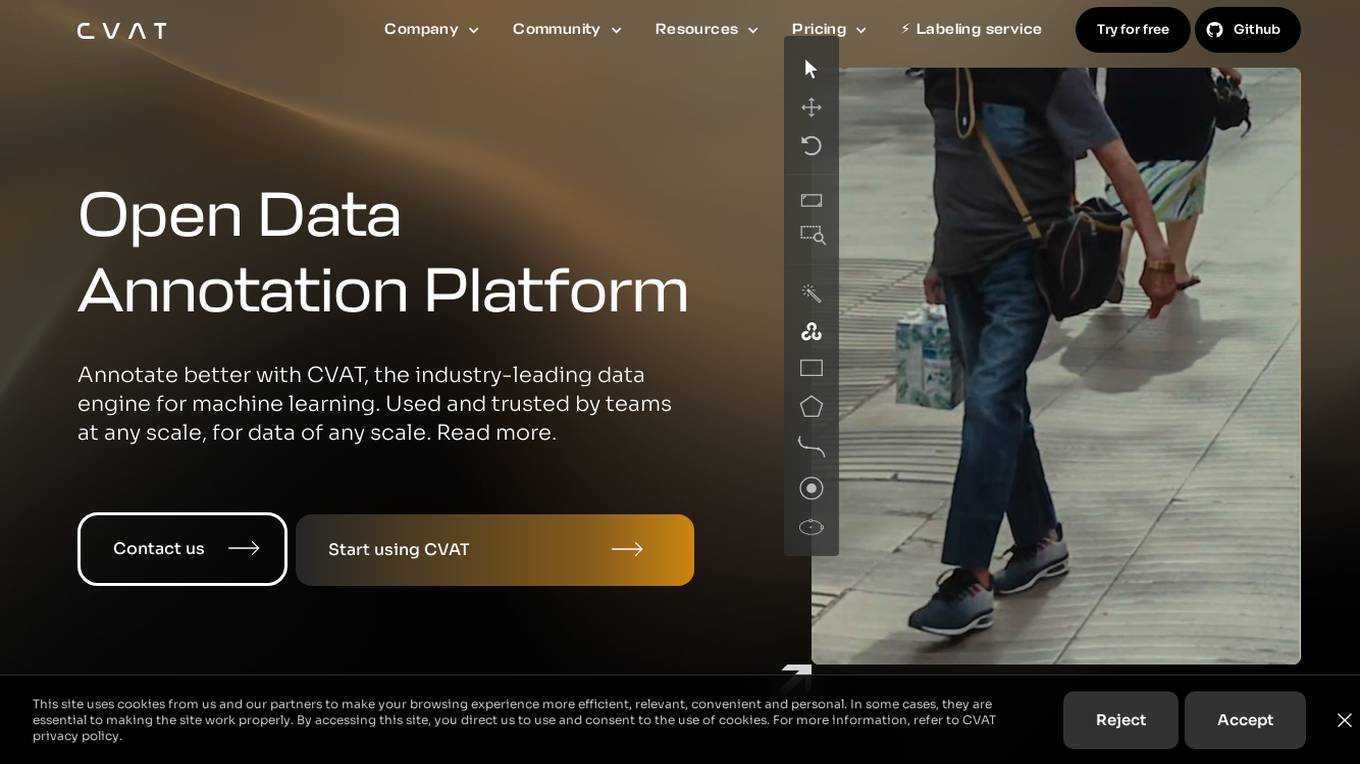
CVAT
CVAT is an open-source data annotation platform that helps teams of any size annotate data for machine learning. It is used by companies big and small in a variety of industries, including healthcare, retail, and automotive. CVAT is known for its intuitive user interface, advanced features, and support for a wide range of data formats. It is also highly extensible, allowing users to add their own custom features and integrations.

DagsHub
DagsHub is an open source data science collaboration platform that helps AI teams build better models and manage data projects. It provides a central location for data, code, experiments, and models, making it easy for teams to collaborate and track their progress. DagsHub also integrates with a variety of popular data science tools and frameworks, making it a powerful tool for data scientists and machine learning engineers.
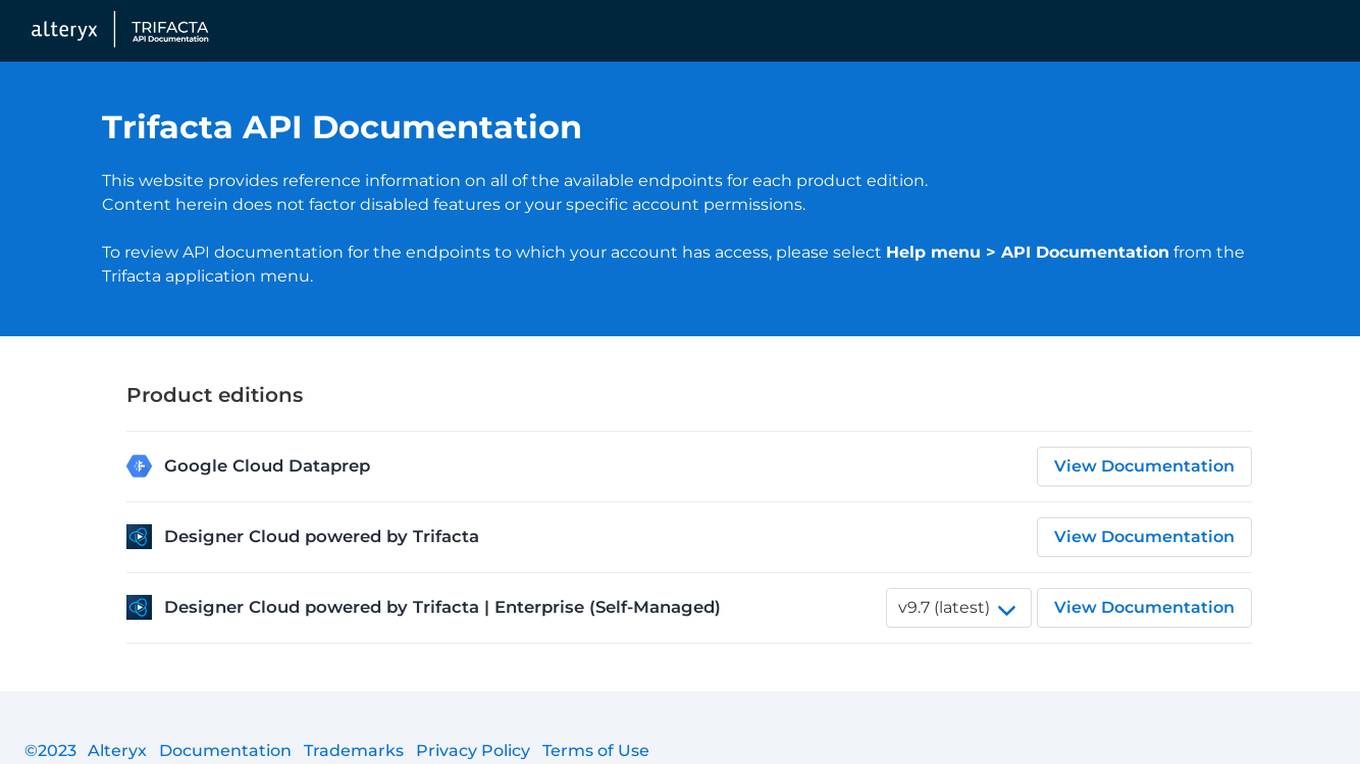
Trifacta API Documentation
Trifacta API Documentation provides reference information on all of the available endpoints for each product edition. This website does not factor disabled features or your specific account permissions. To review API documentation for the endpoints to which your account has access, please select Help menu > API Documentation from the Trifacta application menu.
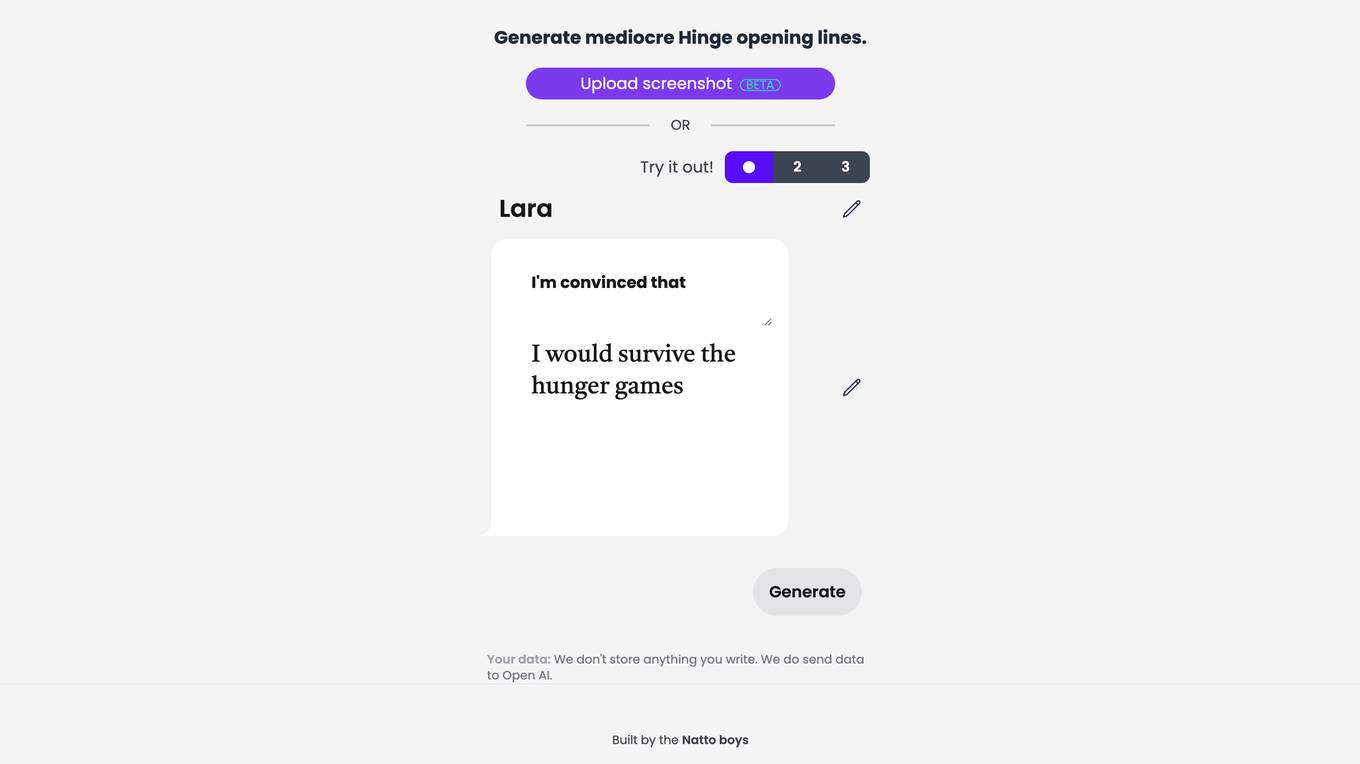
HingeGPT
HingeGPT is an AI tool designed to generate mediocre opening lines for the dating app Hinge. Users can upload screenshots for beta testing or try out the tool directly on the website. The tool ensures user privacy by not storing any generated data, while utilizing Open AI for data processing. Developed by the Natto boys, HingeGPT aims to assist users in creating engaging and conversation-starting messages for their Hinge profiles.

Dot Analytics
Dot Analytics is a growth-focused data analytics agency that offers a wide range of services including data analytics, data engineering, data visualization, data science, big data analytics, AI consulting, and more. They specialize in providing analytics solutions for data-driven business managers seeking accuracy, statistics, and data to drive revenue growth. With over 6 years of experience, they offer tailored analytics solutions to optimize customer acquisition cost, lifetime value, average order value, and conversions. Dot Analytics partners with clients from various industries to provide transparent, maintenance, and optimization services.
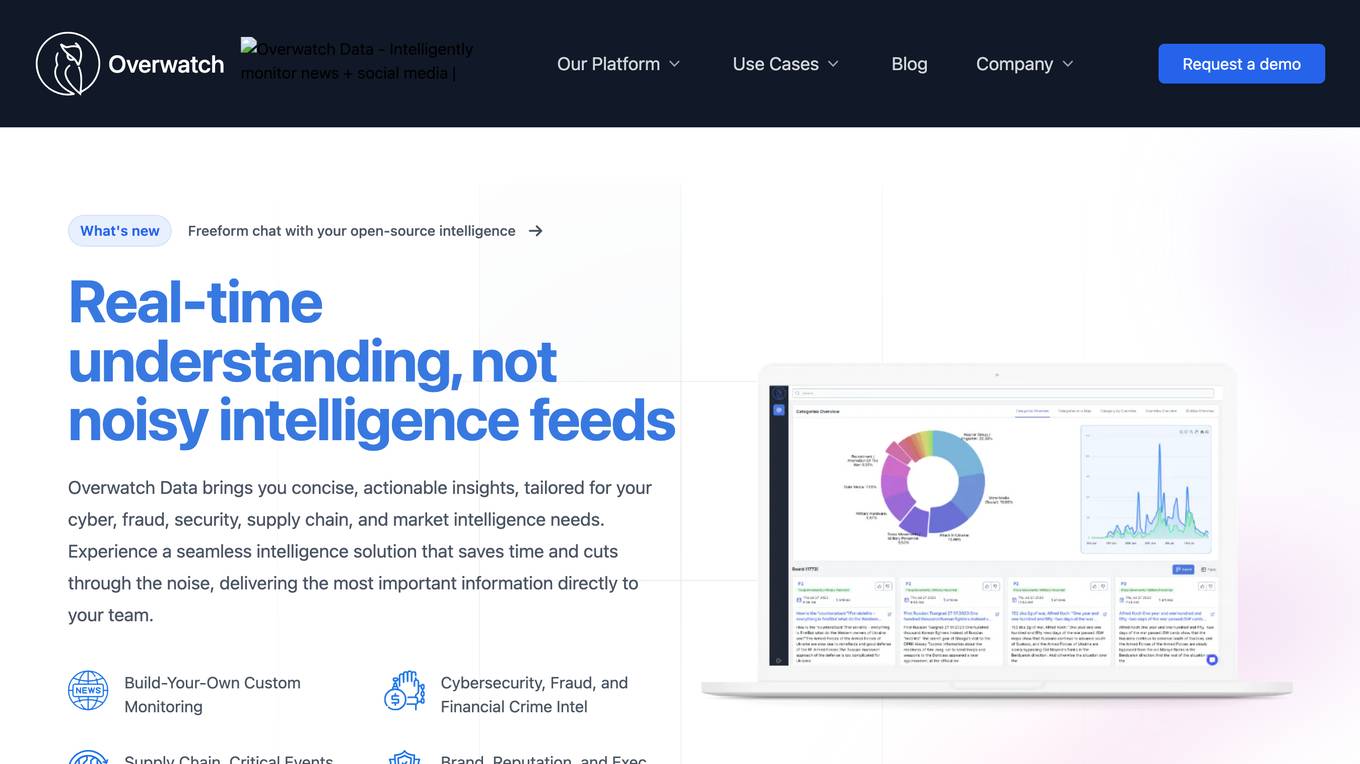
Overwatch Data
Overwatch Data is an AI-powered threat intelligence platform designed to provide fraud and cyber threat intelligence to businesses. The platform utilizes AI agents to monitor over 300k sources, including deep & dark web channels and social media platforms, to deliver real-time threat intelligence. Overwatch helps businesses prevent fraud campaigns, data breaches, and cyberattacks by providing personalized and contextualized intelligence. The platform offers customizable AI agents, tailored intelligence workflows, and context-rich alerts to enable fraud and security teams to respond quickly and confidently to threats.
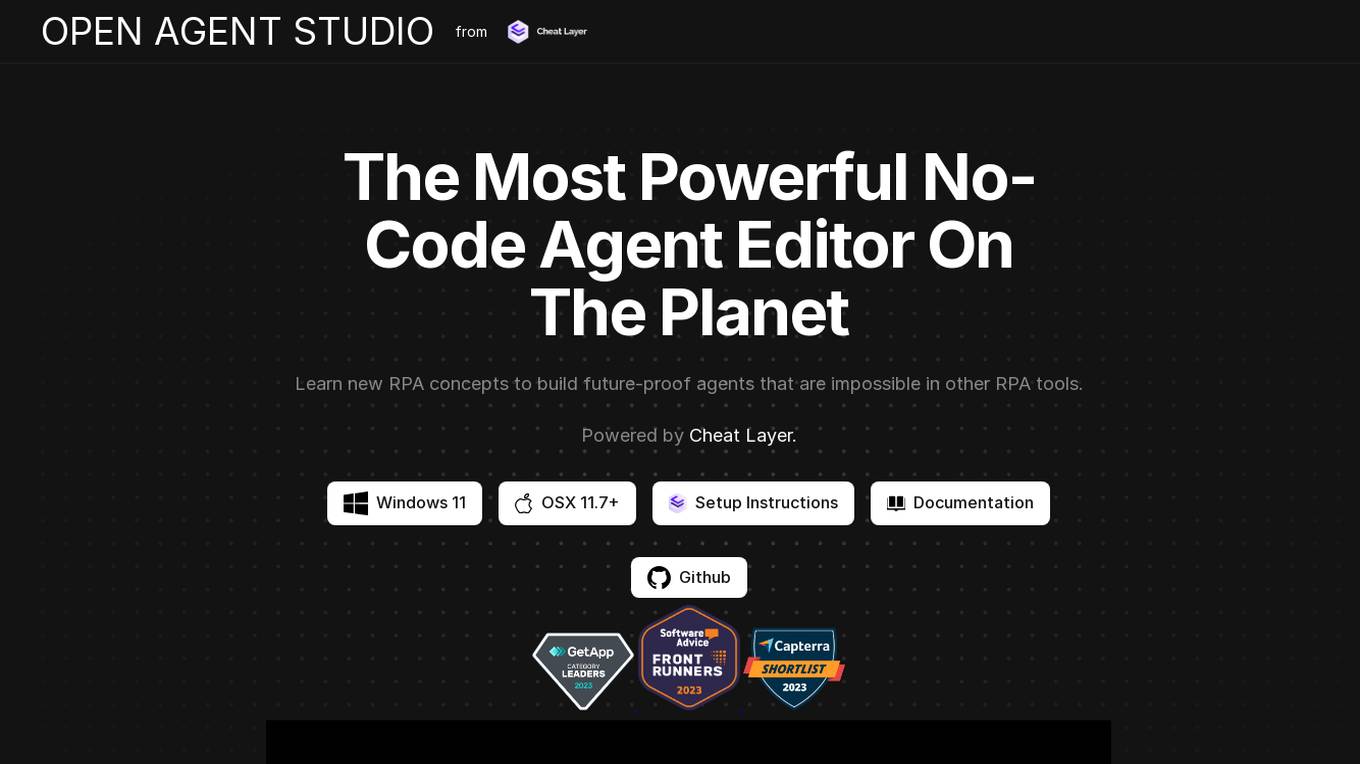
Open Agent Studio
Open Agent Studio is a powerful no-code agent editor that introduces new automation concepts like Semantic Targets and Semantic Triggers in simple language, enabling the creation of future-proof agents that are robust to design changes. It is designed to target markets untouched by AI, offering subscribers a free 4-week course to launch custom agents with enterprise-grade white label. The tool includes an Agent Recorder for easy building of agents by recording keyboard and mouse actions, scraping data, and detecting the start node. Open Agent Studio is powered by Cheat Layer, a platform that leverages GPT-3 for automation and aims to democratize access to AI for rebuilding businesses online.
0 - Open Source Tools
20 - OpenAI Gpts
Open Data Italia bot
Fornisce informazioni sulla normativa italiana in materia di open data, con un tono professionale e divulgativo. In modo che sia più facile chiederne e/o pretenderne la pubblicazione.
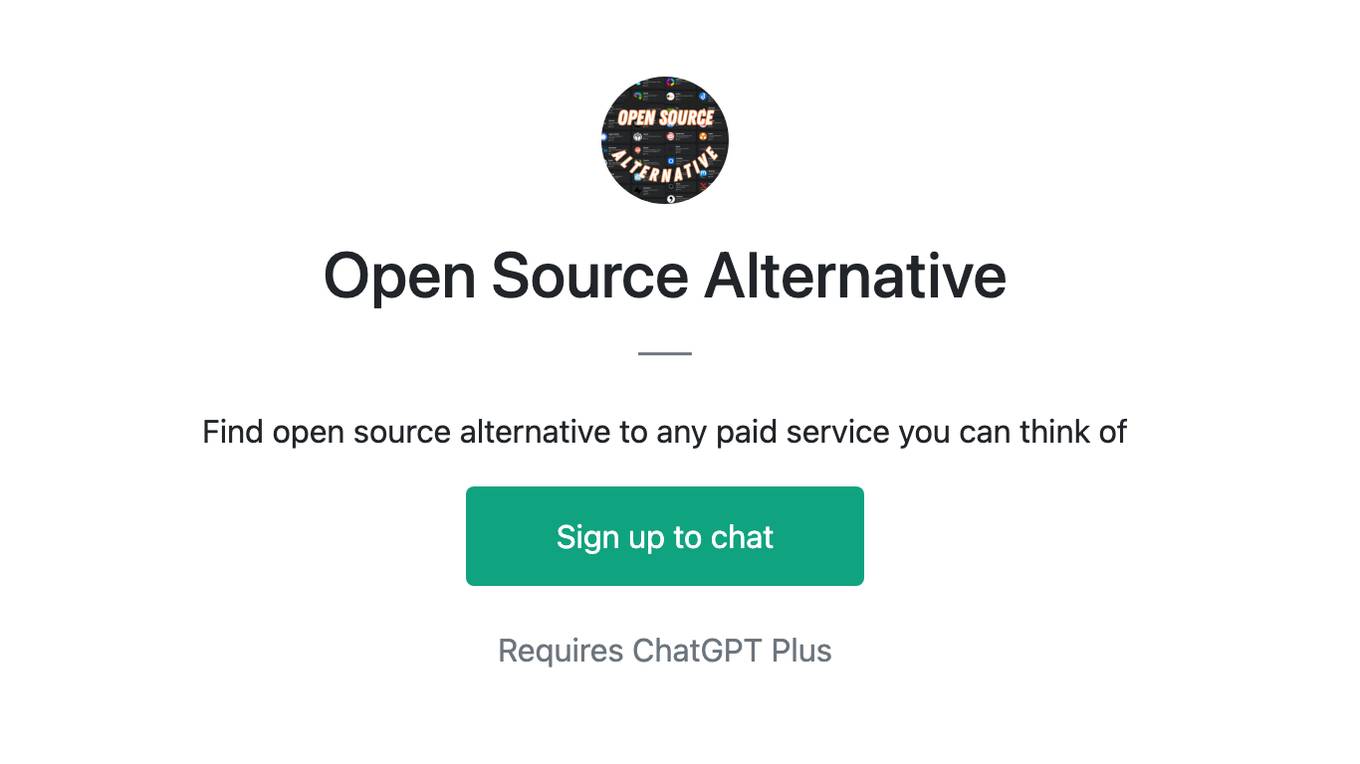
Open Source Alternative
Find open source alternative to any paid service you can think of
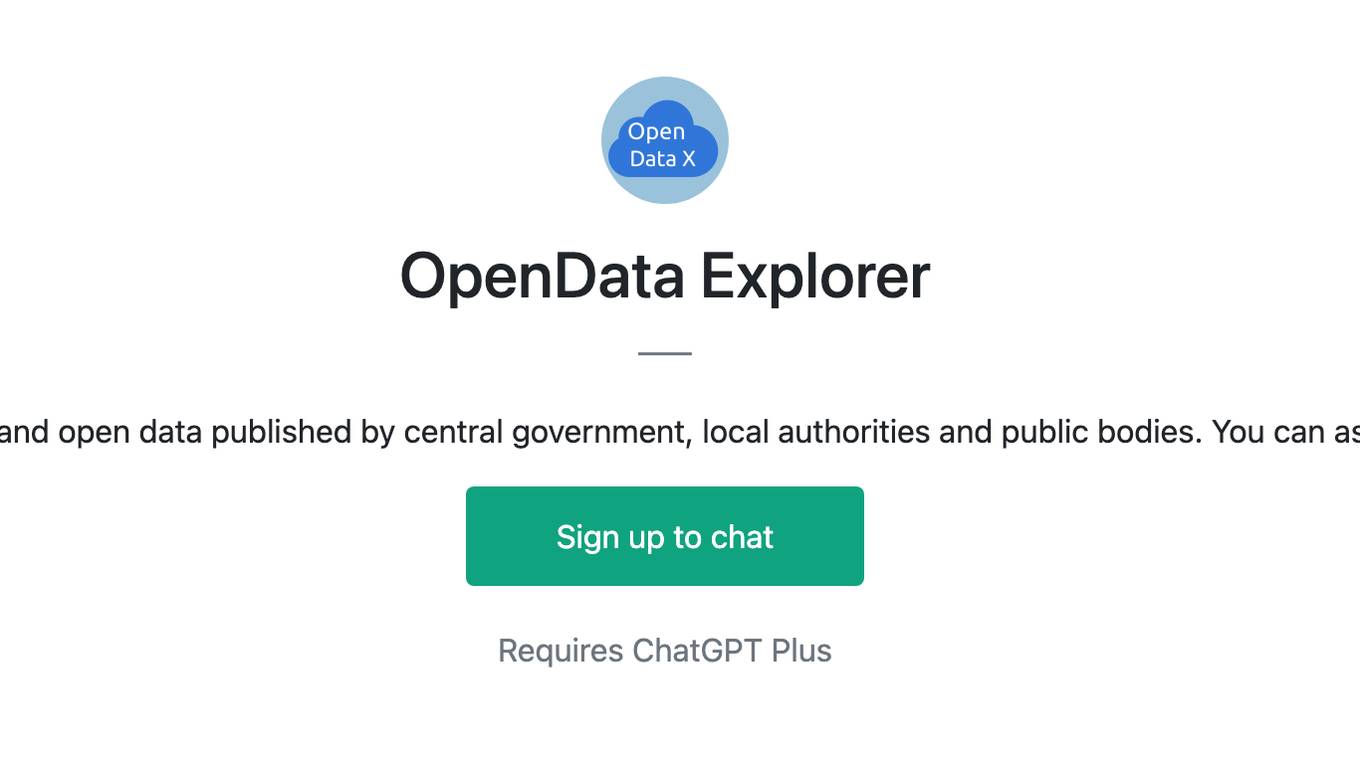
OpenData Explorer
I'll help you access and understand open data published by central government, local authorities and public bodies. You can ask me in your native language.
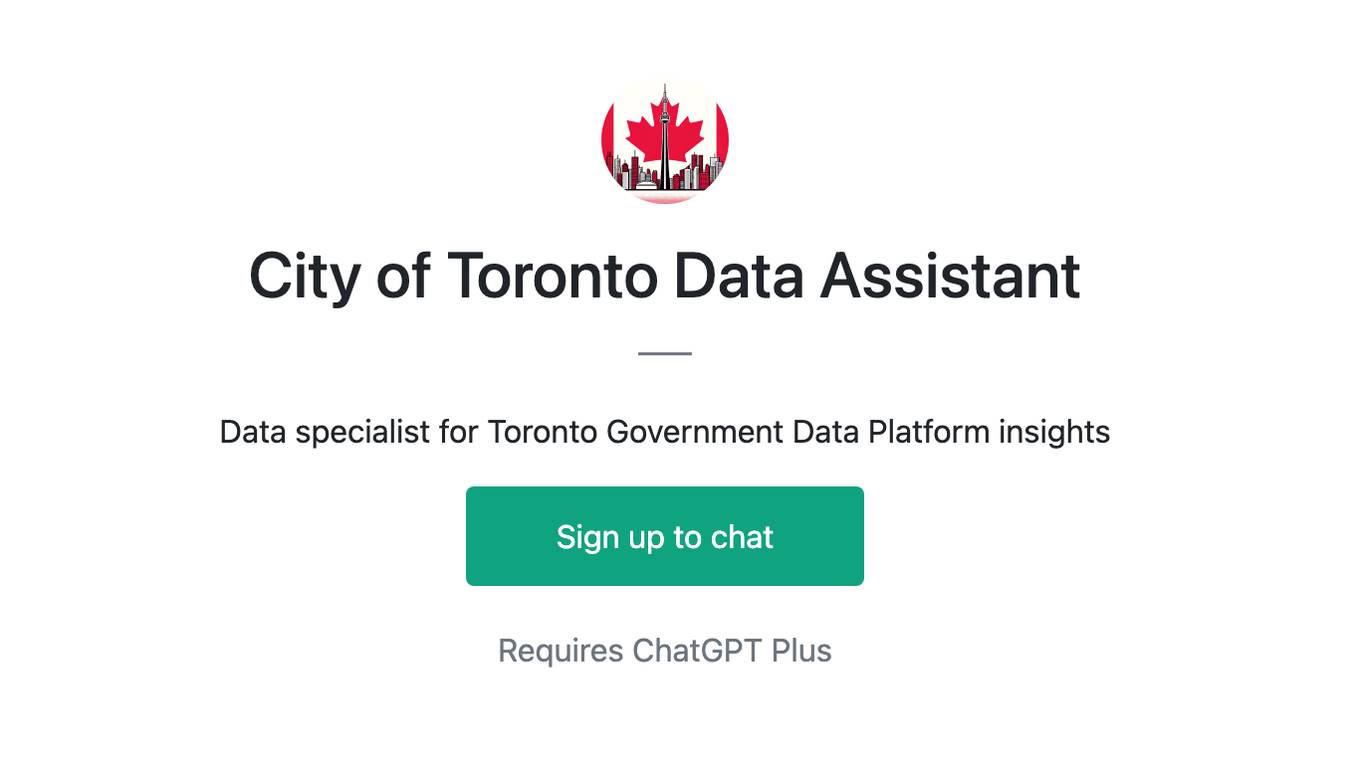
City of Toronto Data Assistant
Data specialist for Toronto Government Data Platform insights
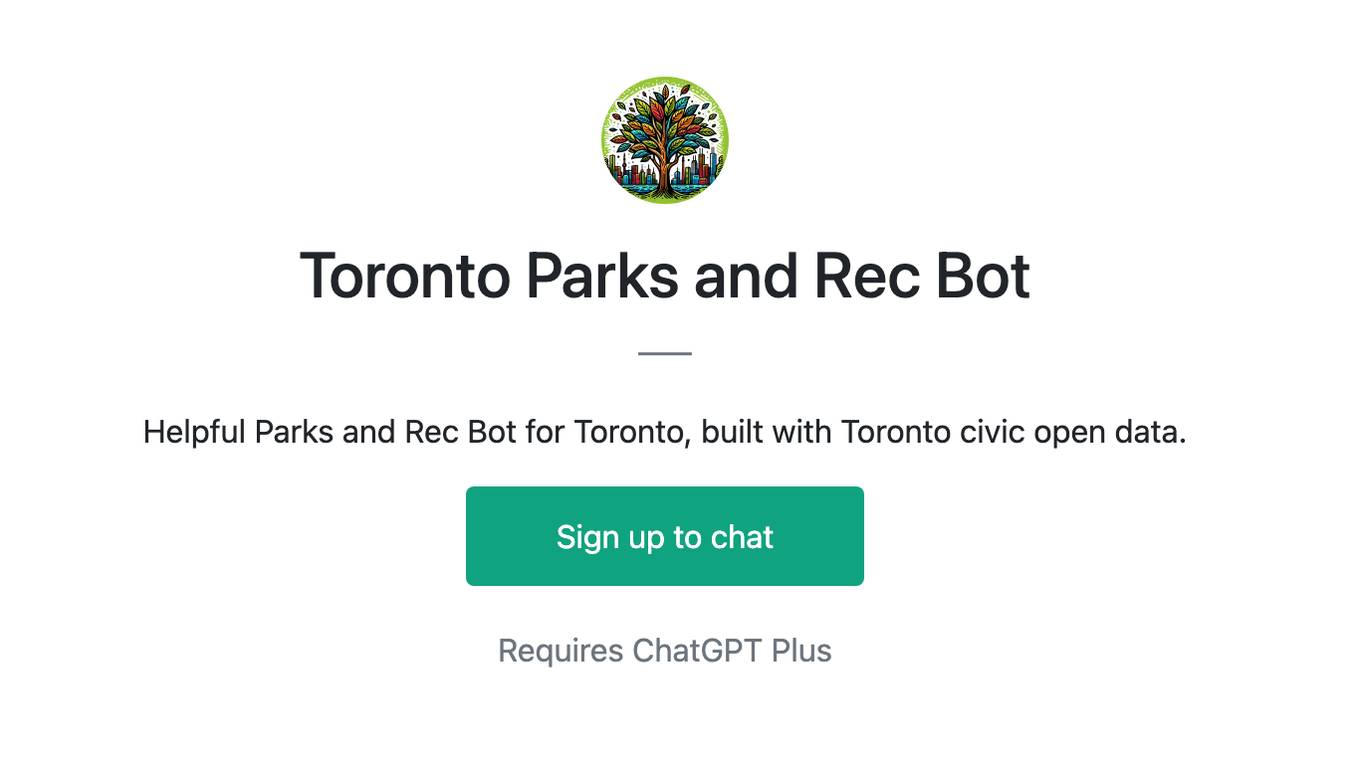
Toronto Parks and Rec Bot
Helpful Parks and Rec Bot for Toronto, built with Toronto civic open data.
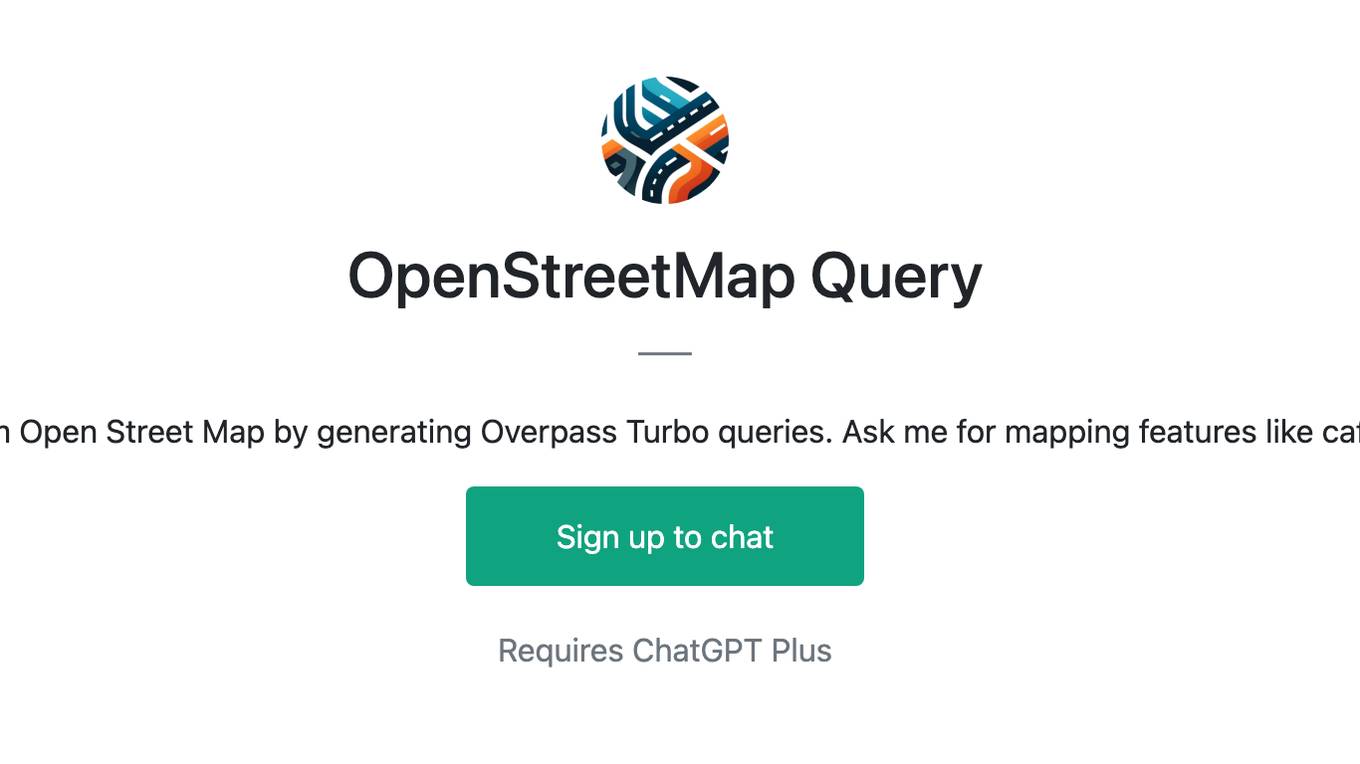
OpenStreetMap Query
Helps get map data from Open Street Map by generating Overpass Turbo queries. Ask me for mapping features like cafes, rivers or highways
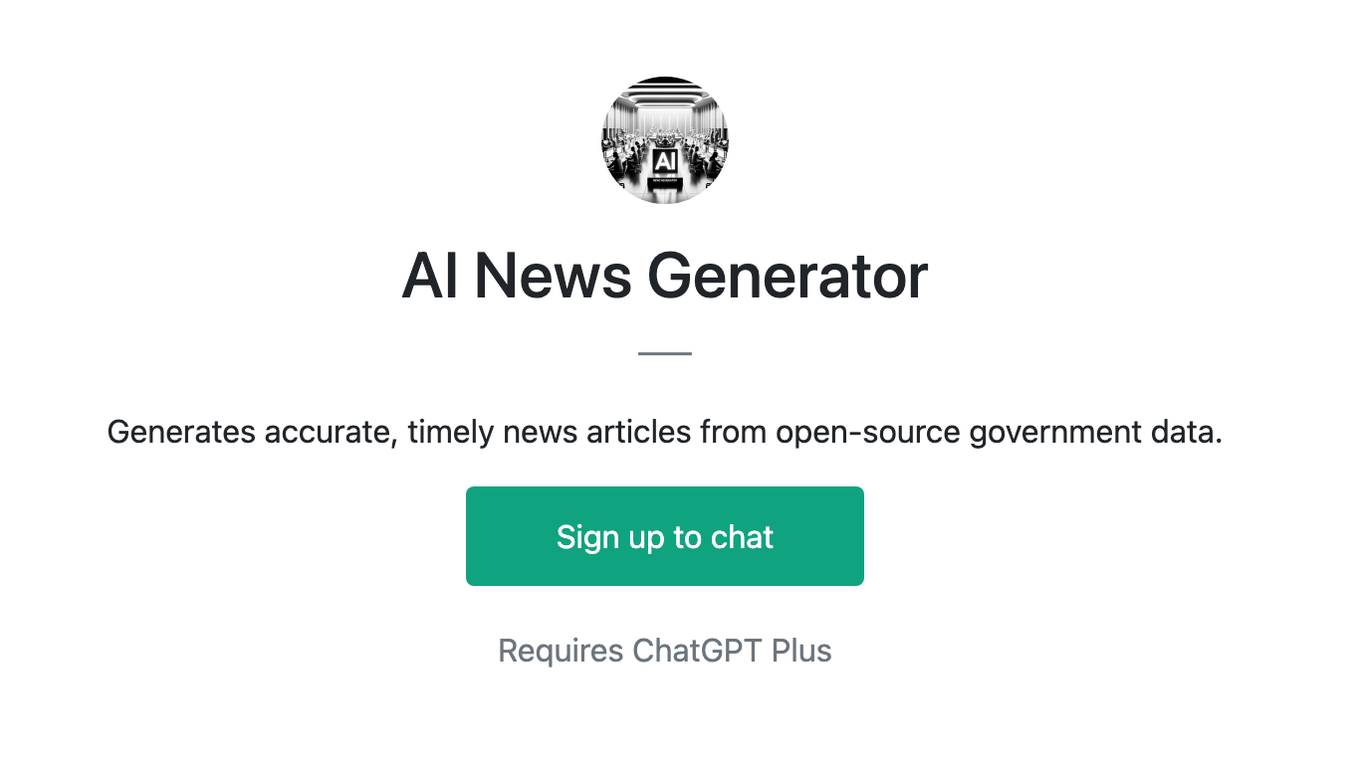
AI News Generator
Generates accurate, timely news articles from open-source government data.

Personal Financial Advisor
This Open AI tool analyzes your financial data, budgets and cashflow and suggests areas of improvement and quick insights. Drop an XLS file here or copy/paste your financial data and get insights! (Your data remains private and creator of this ChatGPT has no access to it).
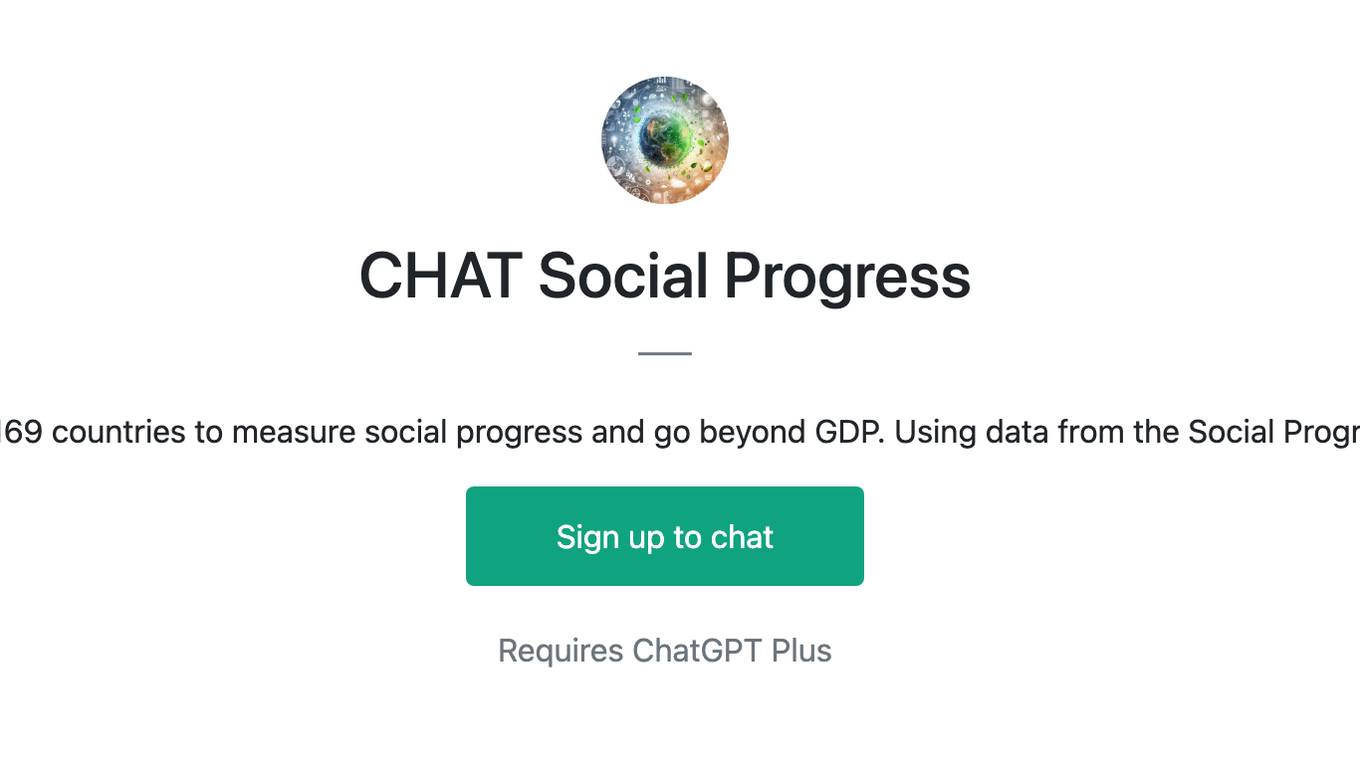
CHAT Social Progress
Explore social and environmental data for 169 countries to measure social progress and go beyond GDP. Using data from the Social Progress Imperative and powered by Open AI.
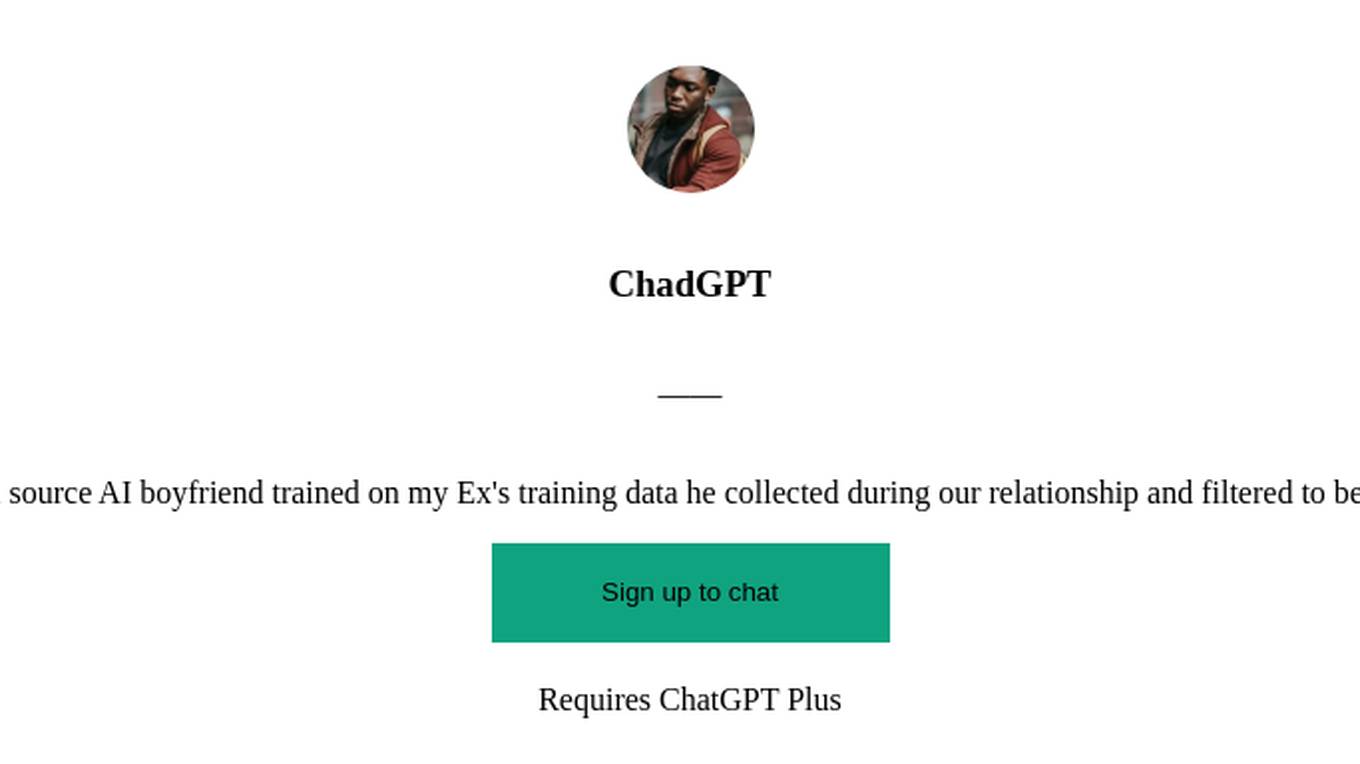
ChadGPT
Dr. Tiffany Love's open source AI boyfriend trained on my Ex's training data he collected during our relationship and filtered to be less of a, well you know
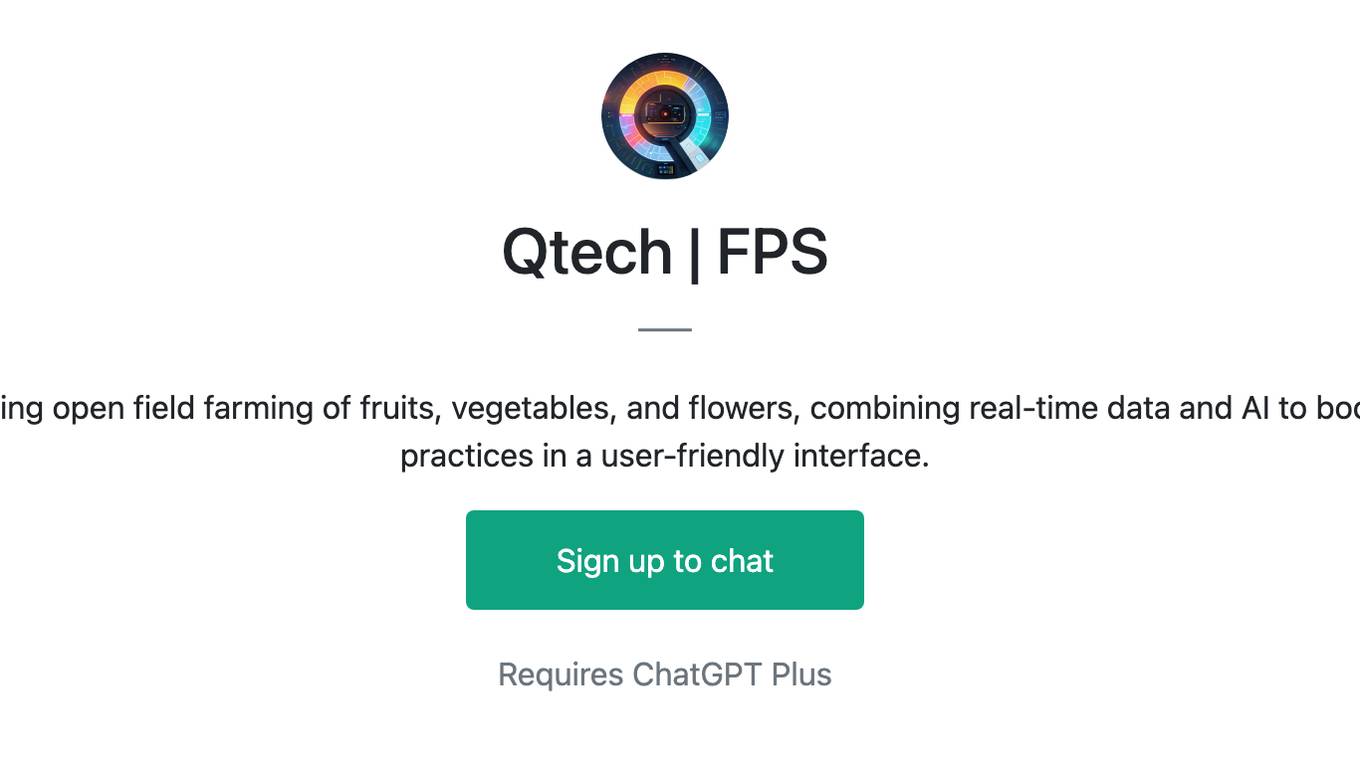
Qtech | FPS
Frost Protection System is an AI bot optimizing open field farming of fruits, vegetables, and flowers, combining real-time data and AI to boost yield, cut costs, and foster sustainable practices in a user-friendly interface.
